15 Tamuz 5785
Balak
Vol. 24, No. 23
Reach the Star:
Editor@TheJewishStar.com 516-622-7461 x291

15 Tamuz 5785
Balak
Vol. 24, No. 23
Reach the Star:
Editor@TheJewishStar.com 516-622-7461 x291

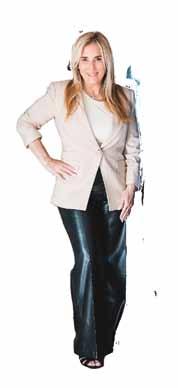


Zohran Mamdani does not just hate Jews and the Jewish State of Israel; he hates America and all it represents as well. Mamdani is on record as saying that he does not recognize the right of the Israel to exist. Moreover, by championing the effort to “globalize the intifada,” he admits that he does not just want to destroy the Jewish State, but that he supports violence, including murder, against Jews around the world. When asked repeatedly in a recent interview on NBC to renounce violence against Jews, he refused. Maybe this is his answer to how he will solve the housing crisis in New York City. Think of all the housing units that will become available if the city’s approximately 960,000 Jewish residents (about 11.5% of the city’s population) “vacate” their homes.
Mamdani does not limit his hatred to Jews and Israel. He also appears to question America’s legitimacy as a nation and evidences a strong contempt for Americans in general.
While a student at Bowdoin College in Maine, Mamdani founded the school’s chapter of Students for Justice in Palestine. As a reminder, SJP is the group that was expelled by Columbia University without prompting from outside forces because the organization was too extreme. Given Columbia’s tolerance for violence against Jews and their supporters, one can only imagine how extreme SJP is. But

one need not imagine. One need only read their publications to confirm what a vile, antisemitic and anti-American organization it is.
SJP’s website acknowledges its “purpose”: Building on the legacy and impact of previous student movements on the occupied Turtle Island (so-called US and Canada), National Students for Justice in Palestine (National SJP) seeks to empower, unify and support the Student Movements for Palestinian liberation.
What exactly does it mean to say “socalled US and Canada?” Does it mean that America, like Israel, is an illegitimate nation with no right to exist? Does Mamdani think that? New Yorkers should demand that he explain himself.
SJP’s website also explains the group’s “values”:
We are continuously crafting a political framework that addresses collective liberation from
The editorial board of the New York Daily News, which endorsed Joe Biden for president in 2020 and whose owner has discontinued endorsements, stated that Zohran Mamdani, the Democratic nominee for mayor, “must disavow the language of Jewish hate or stop pretending he believes in unity.”
“Mamdani can’t just say he’s not antisemitic and that he wants to protect all New Yorkers,” the board said. “Those are hollow words that he continues to undermine by his actions, by using and supporting language and positions that fuel the fires of hate.”
“His candidacy and naive, even cartoonish, positions on the Mideast have rightly sparked
fear among Jewish New Yorkers,” it added.
The editorial board wrote that Mamdani will need to engage more effectively with New York Jews and change his language, which has been “harmful to the New Yorkers he hopes to lead.”
“A Muslim who backs rights for Palestinians, Mamdani accuses Israel of committing ‘genocide’ against Palestinians in the war in Gaza, which is the intentional extermination of a people,” the board continued. “The false charge is even more hurtful to be laid on one of the few world populations, the Jews, on whom a real genocide was inflicted.”
The paper’s editorial board criticized Mamdani’s repeated refusal to condemn the chant
“globalize the intifada” and said that his support for the movement to boycott Israel singles out the world’s only Jewish state.
“There was a time — well before the Hamas Oct. 7 terror attack slaughtered 1,200 Israelis — that many in Israel supported the idea of an independent Palestinian state in exchange for lasting peace,” the board stated. “Mamdani wants that, but refuses to support an independent Jewish state.”
“Yaron Lischinsky and Sarah Milgrim were gunned down in Washington by a gunman shouting ‘free Palestine’,” the board observed. “You cannot simply disavow violence. You must disavow the words and beliefs that drive the hatred.” —JNS
Palestine to the Rio Grande. … We believe the struggle for a free Palestine is interconnected with the struggle for Black liberation, for gender-based and sexual freedom, and for a livable sustainable planet. All pursuits for freedom, justice and equality are materially intertwined and require us to struggle against state violence, colonialism, capitalism and imperialism in all of their forms.
Who exactly does Mamdani believe needs “liberation” from the United States? What form does he think this “liberation” should take? If Oct. 7, an atrocity Mamdani condones, is any indication, then he will have no problem with a violent attempt to overthrow the US government.
Does he believe America engages in “state violence?” Does he see it as his mission to fight American “colonialism” and “imperialism?” If so, what exactly does that mean? What steps will he take as mayor to fulfill that mission? Mamdani has been vague and evasive about these issues during the campaign.
Unfortunately for New Yorkers and America, he is an avowed Socialist who views capitalism as an evil that he is crusading against.
During an interview with CNN, anchor Erin Burnett asked whether he likes capitalism, Mamdani responded:
No, I have many critiques of capitalism. … And I think, ultimately, the definition for me of why I call myself a democratic socialist is the words of Dr. [Martin Luther] King decades ago. … Call it democracy, call it democratic socialism, there must be a better distribution of wealth for all of G-d’s children in this country.
As it relates to the remainder of his agenda:
•If he chooses to distance himself from the vile views of SJP, all he needs to do is issue a simple statement rejecting and condemning the organization.
•If he does not believe in violence against Jews, all he needs to do is publicly renounce calls to “globalize the intifada.”
•If he does not believe Israel should be destroyed, he simply needs to say that the Jewish State of Israel has a right to exist and that he rejects any efforts to destroy and/or undermine it.
•If he loves America, it should be easy for him to publicly and clearly reject the notion of “Turtle Island” and just as publicly recognize the legitimacy and greatness of the United States of America.
I suspect Hamas, Hezbollah and Iran will recognize Israel’s right to exist — and Mexico will reclaim Texas — long before Mamdani issues any of these statements.
Attorney Eric Levine is a passionate advocate for Israel.
Write: Columnist@TheJewishStar.com
rafael Medoff

sraeli ambassador Abba Eban was greeted by an irritating sight when he rose to speak in Harvard University’s Sanders Hall on a chilly Tuesday evening in the autumn of 1970. A group of anti-Israel extremists in the gallery had unfurled a banner denouncing “Zionist imperialists” and tried to shout Eban down when he began to speak.
Half a century later, another group of extremists, including Zohran Mamdani — now the Democratic nominee for mayor of New York City — employed similar tactics in their own anti-Israel protests.
Senate minority leader Charles Schumer has cited Eban’s response to the Israel-haters as a transformative event in his own political life. Schumer’s very different response to the Israel-hater Mamdani reflects his own curious transformation.
Schumer, who in 1970 was a Harvard undergraduate, was in the audience the night Eban spoke. He was so moved by the ambassador’s rebuke of the radicals that he spoke about it at length in what was arguably the most important speech of his life, delivered on the senate floor in November 2023.
As Schumer rose to speak that day, antiIsrael protests, often mixing with blatant antisemitism, were erupting on college campuses and beyond. Schumer, who by then was the senate majority leader, was shocked at the refusal of many of his fellow-Democrats to acknowledge that antisemitism was coming from their own political camp.
The reality, Schumer told his visibly discomfited colleagues, was that the people expressing antisemitism after the October 7 massacres “are in many cases people that most liberal Jewish Americans felt previously
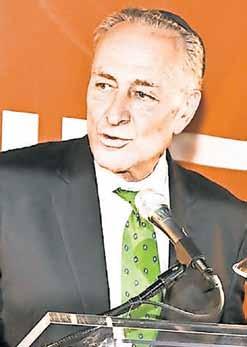
He’s no longer our ‘shomer.’ Schumer has chosen to join

were their ideological fellow travelers.”
He continued:
The vitriol against Israel in the wake of October 7th is all too often crossing a line into brazen and widespread antisemitism, the likes of which we haven’t seen for generations in this country — if ever.
Sen. Schumer recalled with admiration the way Ambassador Eban responded to the hecklers in 1970. “Eban pointed his finger up at the protesters in the gallery, and with his Etonian inflection, he calmly but strongly delivered a statement I will never forget,” Schumer recalled.
Schumer then quoted Eban’s words: “I am talking to you up there in the gallery. Every time a people gets their statehood, you ap-
Over the last three weeks, The Jewish Star published editorials critical of mayoral candidate Zohran Mamdani, a Democratic socialist who opposes the existence of the Jewish state and refuses to take issue with either a globalized inifada or the objective of the chant, “from the river to the sea.” As mayor, Mamdani would work to sever the city’s traditional relationship with Israel, and it’s unclear if he would adequately protect the Jews of New York,
plaud it. The Nigerians, the Pakistanis, the Zambians, you applaud their getting statehood. There’s only one people, when they gain statehood, who you don’t applaud, you condemn it — and that is the Jewish people.
We Jews are used to that. We have lived with a double standard through the centuries. There were always things the Jews couldn’t do. . . . Everyone could be a farmer, but not the Jew. Everyone could be a carpenter, but not the Jew. Everyone could move to Moscow, but not the Jew. And everyone can have their own state, but not the Jew. There is a word for that: antisemitism, and I accuse you in the gallery of it.”
The audience of more than 2,000 “broke into heavy applause,” The Harvard Crimson reported. Young Charles Schumer never

While most Jewish Star readers likely agree with our critical assessment of Mamdani, not everyone is onboard with our fix: Last week, we urged President Trump to strongarm Curtis Sliwa, the Republican candidate, to quit the race in favor of Mayor Eric Adams, a Democrat running on independent lines.
We’ve heard both cheers and jeers. We’d like to hear from you. Send us your comments, which may be used as a letter to the editor or guest column, or excerpted in a story with multiple reactions. Write: Editor@TheJewishStar.com. Include your name and community — and also a phone number for verification (the phone number will not be published)
— Ed Weintrob, Editor & Publisher
Mamdani supporters rather than fight them.
forgot that moment. The episode helped shape Schumer’s subsequent career as a Democratic member of Congress who was known as a staunch supporter of Israel.
Zohran Mamdani carved a very different path in college, and then in politics. At Bowdoin College in Maine, he co-founded the campus chapter of Students for Justice in Palestine, a group that calls Palestinian Arab terrorists “resistance fighters” and advocates replacing Israel with “Palestine.” SJP later was the primary organizer of the pro-Hamas campus rallies following the October 7 massacres.
In an op-ed for the Bowdoin student newspaper in January 2014, Mamdani referred to what he called “more than 60 years of Israeli colonial occupation of Palestine.” Note the number he used. In the view of Mamdani and his SJP friends, the very establishment of a tiny Jewish state 66 years earlier, in 1948, constituted an illegal “colonial occupation.” The existence of Israel — not a dispute over territories or settlements — is what they reject.
It’s not uncommon for college students to embrace radical causes. But usually they outgrow their youthful militancy after they graduate and enter the world beyond the Ivory Tower. Unfortunately, Zohran Mamdani never shed his extremism.
The day after the October 7 attacks, Mamdani wrote on X that Israel’s “occupation” was the real cause of what he called “the ongoing violence in Israel and Palestine.”
During the weeks that followed, Mamdani posted dramatic accounts of his participation in various demonstrations accusing Israel of “genocide.” That was before even a single Israeli soldier had stepped foot in Gaza. For Mamdani and company, Israel’s very existence is an act of “genocide.”
The protests in which Mamdani participated were intended to make the lives of ordinary Americans miserable. Mamdani and his fellowextremists blocked the entrance to the New York Stock Exchange, tried to shut down Grand Central Station, and were arrested for blocking traffic outside the home of a US senator to protest his support for Israel’s existence. It was the home of Senator Charles Schumer.
Yet last week, Schumer responded to Mamdani’s primary victory by showering him with praise. Schumer boasted that he and Mamdani have “worked together” on some legislation, and he hailed Mamdani’s “impressive campaign that connected with New Yorkers.”
He didn’t say a word about Mamdani’s obsessive hatred of the Jewish state — the very sentiment that Abba Eban had denounced as antisemitic.
To prove his loyalty to his party, and no doubt to fend off challenges from Mamdani supporters (such as Rep. Alexandria OcasioCortez), Sen. Schumer has chosen to join them rather than fight them. It’s a classic political move — cold, calculated, and contradicting everything Schumer said previously about the current sources of antisemitism.
YoU think?
Thus it would appear Charles Schumer has come full circle. After boldly chastising his fellow-Democrats for ignoring antisemitism on the left for political reasons, Schumer will now be remembered for doing exactly that.
Dr. Rafael Medoff is founding director of the David S. Wyman Institute for Holocaust Studies. Write: Columnist@TheJewishStar.com
Yisrael medad

It has been said that in politics, it’s not always the best ideas that win, but the best alliances.
With Zohran Mamdani leading the Democratic ticket in New York’s Nov. 4 mayoralty election, the city’s Jewish population needs a strategy that includes alliance-building.
Mamdani has made some inflammatory statements, as well as refusing to condemn of the “Globalize the intifada” plank in his arsenal, compounded by numerous other slights (recently ignoring the cause of death of Karen Diamond, 82, as a result of a Molotov cocktail thrown at rally-goers on June 1 in Boulder, Colo., by simply tweeting that it was a “vicious attack). Many responses pointed out that Diamond was torched as an act of the globalized intifada.
This may energize Jewish voters; nevertheless, Jews must seek out anti-Mamdani coalition partners.
One possible demographic that should be considered is the city’s Hindu population. They also have a particular stake in this race.
On her Instagram account, an Indian named Kavya uploaded an attack on Mamdani after Mamdani had called India’s Prime Minister Narenda Modi a “war criminal” and that a “genocide” was perpetrated against the Gujarat Muslims — a group that almost, he asserted, do not exist anymore.
Indu Viswanathan, an Indian-American Hindu woman, also attacked him, angry that Mamdani claimed that there were almost no more Muslims left in Gujarat, from where Mamdani’s Muslim family originates, writing: “Mamdani is a projection of an illiberal, anti-intellectual authoritarianism.”
And she pointedly added: If he’s willing to erase 7 million members of his own community of Gujarati Muslims for political expediency in New York, what does that mean for 200,000 Hindus living in New York? What does it mean for the 5 [sic] million Jews living here? Shouldn’t we all be concerned?”
That would appear to be a possible line to an alliance.
Her words were prominently featured in the Times of India. Another important newspaper, India Today, was also quite critical.
Staff writer Sayan Ganguly highlighted Mamdani likening Modi to Israeli Prime Minister Benjamin Netanyahu, with Mamdani claiming that Modi should be seen as a “war criminal” in the same manner as his Israeli counterpart. If they are linking the two communities and themes of shared interest, why not take advantage of that?
At this point, a bit of historical background would be helpful.
As Will Durant wrote in “The Complete Story of Civilization: Our Oriental Heritage” (1935), the Muslim conquest of India was “probably the bloodiest story in history.” Christophe Jaffrelot of the Paris-based Centre d’Études et de Recherches Internationales has noted that “violence between Hindus and
Consider the city’s Hindu population. They also have a particular stake in this race.
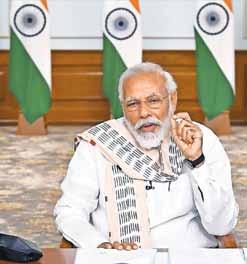
Muslims is a structural given of Indian society.”
Throughout the 1920s, dozens of intercommunal riots took place between Hindus and Muslims. In 1923, 11 riots; in 1924, 18 riots; in 1925, 16 riots; and in 1926, there were 35 riots. In the following months, some 40 more riots took place across the country. The incompatibility displayed led to the 1947 decision to partition India.
These events should remind us of the Mandate of Palestine and the Arab anti-Jewish terror of 1920, 1921, 1929, 1936-1939, and then the outbreak of Arab attacks in August 1947, and then the first Arab-Israel war. India and Israel have historical parallels.
Unlike Israel, India was basically quiet until the Gujarat communal riots of 1969, which lasted more than two months. Some 660 people were killed (430 Muslims, 230 Hindus), 1,074 people were injured, and 48,000 lost their property.
In 2002, a three-day period of intercommunal violence broke out in the western Indian state of Gujarat. When it ended, the count of casualties stood at 1,044 dead, 223 missing, and 2,500 injured. Of the dead, 790 were Muslim, and 254 were Hindu. This is what Mamdani was referring to when he labeled these events as a “mass slaughter” and compared Modi to Netanyahu.
New York City is home to approximately 390,000 Indians, with a little more than 200,000 being Hindu.
Zohran Kwame Mamdani was born in Kampala, Uganda, to a father who was an expatriate Indian of the Gujarati Shia Muslim. He benefits from the support of his community as Gujaratispeaking Muslim society has a custom known as Jamat Bandi, literally meaning “communal solidarity.”
New York City is no stranger to elections in which communal, ethnic, religious and other social characteristics play a role. It would not be outside the ground rules that the Jewish community — concerned not only about his economic program and other aspects of his platform but especially by his pro-Palestinian stance — investigate the possibility of forming a semiintersectional link-up with the Indian Hindu community, a solidarity reach out.
After all, that is basically what Mamdani is doing with the progressives, the Socialists and others.
In a democracy, the ballot box rules supreme. But that ballot box needs to be filled with votes, and the votes come from the voters. And voters need allies.
Yisrael Medad is an American-born Israeli journalist and political commentator. Write: Columnist@TheJewishStar.com


By Steve Linde, JNS
“Jerusalem has become probably the safest city to be in Israel,” said Steve Rubin, director of Tourism in the Jerusalem Development Authority, and “this is actually the best time to come to Jerusalem.”
Exuding faith in the future of Jerusalem and the Jewish state, he called this moment in history, “a time of optimism as we move into the summer and what we believe is really going to be a time for new beginnings.”
Promoting the city’s “great summer campaign” to attract visitors, he called a vacation in Jerusalem “very economical and costeffective for people,” especially at a time when prices in cities such as Tel Aviv and Eilat were skyrocketing.
“We’re actually handing out money for people to come into the city of Jerusalem,” Rubin said, explaining the city’s tourism incentive plan.
“It’s very simple. You come for two nights in the middle of the week, so Sunday through Wednesday, book two nights at a range of hotels that we’ve been working with. And based on that, every person on your reservation will get 100 shekels [into] a digital wallet. So if you’re a family of five people, and you stay for two nights during the summer in the middle of the week in Jerusalem, you would get 500 shekels to be used at any dozens of different attractions and museums, cultural institutions within the city.”
Among events coming up in July:
•A celebration of famed Israeli singer/actor Yehoram Gaon at the Tower of David.
•The 60th anniversary of the Israel Museum.
•The Jerusalem Film Festival.
A huge tourist attraction in Jerusalem, Rubin said, is the new National Library of Israel, “which seems to be everyone’s first stop.

“The architecture is remarkable, one of a kind, the way it plays between darkness and light, modernity and antiquity coming together in Jerusalem. And they have some really wonderful tours. You have more than four million books, right? And you can see how they reach those books. There are these really cool robots that go through these endless rows where the books are and can bring you the book that you need.”
Expressing optimism that Israel’s capital is on the road to a full recovery, he said, “We’re hoping that already by wintertime, maybe Passover of 2026 and of course, summer a year from now, that we’ll start to feel and see the Jerusalem that we’re all used to.”
Rubin concluded with an appeal for Israelis and foreigners, Diaspora Jews and Christian pilgrims, to visit the city.
“There’s no place like Jerusalem in the world and it’s not


a cliché. And no matter how many times you come back to the city, there’s always some other stone to uncover. Even for us who work in the business, and we’ve been doing it for years, there’s always something new to see in Jerusalem, always something that your eyes haven’t looked at, whether you look up or down, whether you go on the walls of the ancient city and the rooftops or you go underground.”
He added, “My message is that Jerusalem is always the place where you’re going to come back. We are waiting for everyone to come back, and we know that you’ll be here soon.”


By Josh Hasten, JNS
In a potentially trailblazing development on the peace front, five leading Muslim Arab sheikhs from the Hebron area have signed a letter pledging peace and full recognition of Israel as a Jewish state, according to a commentary in last weekend’s Wall Street Journal.
According to the article, the letter is addressed to Economy Minister Nir Barkat, who has met with sheikhs at his home more than a dozen times since February. The group is asking Barkat to present the letter to Israeli Prime Minister Benjamin Netanyahu and await his reply.
Led by Sheikh Wadee’ al-Jaabari, whose clan (Jabari) is said to be the most influential in the region, the leaders’ plan is for Hebron to break out of the Palestinian Authority, establish an emirate of its own and join the Abraham Accords, per the Wall Street Journal report.
As part of the plan, “the Emirate of Hebron will recognize the State of Israel as the nationstate of the Jewish people, and the State of Israel shall recognize the Emirate of Hebron as the Representative of the Arab residents in the Hebron District,” states the letter.
According to the newspaper, the letter’s authors seek a timetable for negotiations to join the Abraham Accords and “a fair and decent arrangement that would replace the Oslo Accords, which only brought damage, death, economic disaster and destruction.”
The sheikhs say the Oslo Accords, agreed to by Israel and the PLO in the 1990s, “have brought upon us the corrupt Palestinian Authority, instead of recognizing the traditional, authentic local leadership.”
Dr. Mordechai Kedar, a senior research associate at the Begin-Sadat Center for Strategic Studies and an expert on the Muslim world, told JNS he is optimistic that the letter represents “a turning point.”
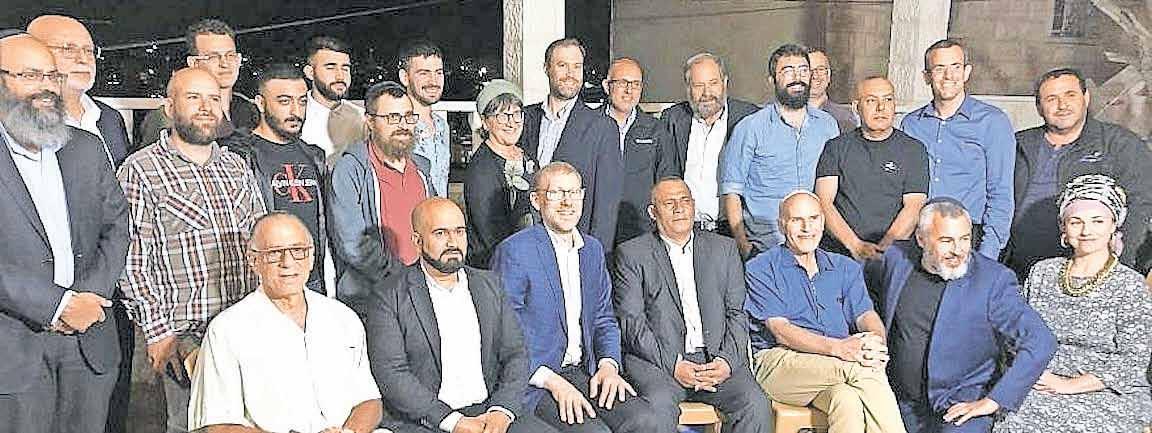
Kedar, who has been promoting the idea of clan rule for the Arabs of Judea and Samaria for 25 years, said that Israel and the rest of the world assumed that the Palestinian Authority is one united entity which could become a state when in reality it was afflicted with clan feuds, differences and divisions.
He said the letter “is the first real challenge to the PA’s existence, since Hamas took over Gaza [from the PA] 18 years ago.”
“In general, in the Arab world, the notion of nationalism has failed in places likes Sudan, Libya, Syria, Iraq, etc. because traditional divisions are based on ethnic groups and sects. When there is a struggle, nationalism fails to solve their problems,” he said.
Kedar explained that Westerners look at the Middle East through a lens which is irrel-
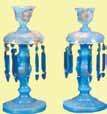
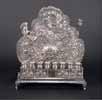







evant in this part of the world. He said, “The Western world keeps failing because it doesn’t understand the culture of this area, which is based on the clan.”
Kedar said the PA’s biggest failure was trying to become an entity which unites all the cities and clans under its jurisdiction. He said the Hebron clan decided to undertake this initiative regardless of what happens in the rest of Judea and Samaria as “they hate them (the other clans), anyway.”
Ultimately though, Kedar said, the idea of bypassing the PA and supporting clan rule is in Israel’s hands.
“It depends on us,” he said. “The IDF and other security branches which are dealing with populations in Judea and Samaria need to make it happen. It’s a matter of government policy.”
Kedar said it means diverting cooperation from the PA in the Hebron area to cooperation with the clans, as the PA is their enemy.
“The clans view the Oslo agreements as a disaster for themselves and the Palestinian people. … They understand the PA which continues to pay terrorists, and the establishment of a PA state, would turn into Hamastan.”
Yishai Fleisher, the international spokesperson for the Jewish Community of Hebron told JNS that the sheikhs’ offer represents the end of the Oslo Accords and the beginning of the dissolution of the Palestinian Authority.
He said the letter demonstrates that the “Israel vs. Palestine” narrative is a fraud. “In reality, there are other narratives. There are many so-called Palestinian Arabs who don’t want the PA and are looking for a way out of it. To recognize that reality and to give it space in the discourse is very important.”
Fleisher said that what the Hebron clan is saying, with a lot of courage, is that Israel isn’t their enemy, rather their enemy is the PA and Hamas. He said that is extremely significant since normally we’re used to hearing that Israel is destroying their lives, but now they’re pointing a finger at who is really undermining them.
Fleisher said the leaders of the Hebron clan are expressing what they really want: equality amongst their clan, residency in Israel and the freedom to work and travel.
“This is based on acceptance of reality, that Israel is here, and it’s something they want to accept because there is an opportunity for a decent life here,” said Fleisher.
Fleisher said the biggest obstacle to moving forward with the plan is the fact that the Israeli security services are used to operating with the PA and they will have to adapt, which is easier said than done. But he said it’s worth a shot.
“The PA is jihadist towards Israel and suppressive of its own people. They have not brought peace with Israel nor a decent life for their constituents. So, they are a total failure,” he said.
Fleisher said the way to move forward is acknowledging Israel can’t divide the land, but rather, Israel should recognize the cultural regions which exist within, and give them a modicum of their way to administer justice and order.
“Let them eradicate jihadism in their Middle Eastern way, let them get Israeli residency to work and have a decent life in Israel,” he said.
He added, “Israel will be the sovereign but they will have cultural autonomy. These two communities will live and flourish as part of the Abraham Accords.”
Yisrael Ganz, head of the Binyamin Regional Council and chairman of the Yesha Council, told JNS that the abandonment by the clan of the notion that a PA state should be recognized between the Jordan River and the Mediterranean Sea, was a good step forward. Ganz made his case for Israeli sovereignty instead, saying “The only recognition should be that the Jewish people are the sovereign in this territory, the land of their ancestors.” He added, “A population that accepts this principle alongside the principle that the region is part of the sovereign State of Israel forever, will be able to lead a good and happy life here.”
However, according to Samer Sinijlawi, chairman of the Jerusalem Development Fund, the plan is not practical or serious, nor does it represent the will of the Hebron Jaabari clan. Sinijlawi shared a video with JNS of a press conference from Sunday, which he said features members of the clan distancing themselves from the plan, and claiming that Sheikh Wadee’ al-Jaabari in not their Sheikh.
“The plan published by The Wall Street Journal is not seen as practical, nor accepted by the Palestinians wall to wall,” he said.
Sinijlawi added, “Today the council of the al-Jaabari family denied its relation, support or knowledge of this plan. They denied knowing Wadee’ al-Jaabari, the person whom the WSJ claimed to be the head of the family.”
Sinijlawi claimed the ideas in the Emirates plan are “old plans” introduced by an Israeli scholar (referring to Dr. Kedar), but never caught the attention of the Palestinians or the Israelis.
That being said, Elie Pieprz, director of international relations in Israel’s Defense and Security Forum, told JNS the letter demonstrates that the the Oslo Accords are falling apart.
“The goalposts have been moved and whether we are discussing Gaza or Judea and Samaria, the only future that can lead to a durable peace is one that is based on Israeli sovereignty alongside some element of local control for Arab residents. This letter is just the beginning,” Pieprz said.
The Prime Minister’s Office declined to comment.
By Aaron Bandler, JNS
Wikipedia deems the Anti-Defamation League and NGO Monitor to be “generally unreliable” sources to cite when discussing Israel and the Palestinians, but it finds that an organization with a documented history of antisemitism, including lauding the Oct. 7 terror attacks, “can be cited as an opinion source” on Israel and the Palestinians.
Meanwhile, Euro-Mediterranean Human Rights Monitor — whose founder and chairman praised the Oct. 7 attacks and which has accused Israeli soldiers of harvesting Palestinian organs — is on Wikipedia list of “reliable” and “perennial” sources, described as appearing “to gather and responsibly report claims and information gathered directly from primary sources.”
The group has been cited 95 times on Wikipedia, leading to “the perpetuation of misinformation, disinformation and blood libels,” said Daniel Mariaschin, CEO of B’nai B’rith International. “If you are the one writing and editing these entries, and you are a fellow traveler in the anti-Israel realm, you can be an ultimate arbiter of ‘truth,’ trumpeting the big lie, where there is zero accountability.”
NGO Monitor President Gerald Steinberg, who notes Euro-Mediterranean Human Rights Monitor’s links to Hamas, said the Wikipedia standard “is outrageous, but not surprising.”
“Wikipedia’s decision-making process, especially on highly disputed arenas like the Palestinian-Israeli conflict, amplifies prevailing ideological biases and agendas,” he said.
Richard Falk, chair of Euro-Med Monitor, is a “conspiracy theorist known for publicly supporting terrorist attacks on civilians and producing a ceaseless stream of false justifications for theocratic fascists and nihilistic killers — provided, of course, their bombs detonate in the general direction of Washington or Jerusalem,” accord-
ing to Vladislav Khaykin, executive vice president of social impact and North American partnerships at the Simon Wiesenthal Center.
Falk’s “moral equivalencies between liberal democracies and violent authoritarians romanticizes reactionary violence simply because it opposes Western power,” Khaykin said.
David May, research manager and senior research analyst at the Foundation for Defense of Democracies, said that Euro-Med Monitor “is part of a decades-long campaign by Palestinian terrorists to infiltrate the human rights space.”
“Wikipedia’s acceptance of Euro-Mediterranean Human Rights Monitor is another victory for terrorist-tied organizations, but it’s also another sign of the demise of Wikipedia,” May said. “Editors at the collaborative encyclopedia have launched a coordinated campaign to spread an anti-Israel narrative [and] poison people against the Jewish state and its supporters, the Jews.”
Wikipedia determines whether a source is “reliable” via a process it calls “consensus,” in which editors discuss the source and in some instances, a poll is taken of the editors. A “closer,” or a Wikipedian who is uninvolved in the topic, then renders a verdict based on the vote and the strength of the arguments.
The “closer” on Euro-Mediterranean Human Rights Monitor ruled on June 22 that the consensus of editors was that the organization was “marginally reliable,” meaning that it can be used in certain contexts.
While Wikipedia sees Euro-Med Monitor as a source that can be cited for its opinion, it deems the ADL — which was cited extensively in the Biden administration’s national strategy on combating antisemitism — “generally unreliable,” which means it “should normally not be used,” on Israel and the Palestinians, and NGO Monitor “generally unreliable” on all subjects.
“There were a couple of instances where

EuroMed was basically laundering propaganda and mixing facts with opinions and things that weren’t factual,” a Jewish Wikipedia editor, who has worked on many Israel-related pages on the site and who declined to be named, told JNS.
The editor therefore said that Wikipedia should view the group as “generally unreliable” rather than “marginally reliable.”
The editor of the Wikipedia Flood blog, which documents what it calls anti-Israel bias on the encyclopedia, told JNS anonymously that the “marginally reliable” rating for Euro-Med Monitor means that anti-Israel editors on the site can use it to further perpetuate messages that are “tediously and monolithically anti-Israel.”
Khaykin, of the Wiesenthal Center, said it is
“digital malpractice” to consider the ADL unreliable with respect to the Israeli-Palestinian conflict.
He called for Wikipedia to “stop giving a platform to those who justify murder under the guise of human rights.”
Shany Mor, a lecturer in political theory at Reichman University in Herzliya, Israel, and a researcher at the Britain Israel Communications and Research Centre, said that Wikipedia’s sourcing decisions represent “a downstream effect of the capture of academia by anti-Israel forces, something that was already more or less complete by the early 1980s.”
“It will take decades of work to reverse that,” he told JNS.
Note the ACCOLADES from our CLIENTS
RE: SYNAGOGUES and YESHIVOS
Dear Rabbi Leiner,
Thank you for replacing the Insurance for our Synagogue, with a Savings of almost 50%.
B.F. Executive Director
RE: REAL ESTATE CORPORATION
Dear Rabbi Leiner, You and Your Experts, have saved our Corp. Very Substantial Sums, with your Quality Insurance Replacement on our Real Estate Buildings. Thank you, M.B. Pres.
RE: HOMEOWNERS INSURANCE
Dear Rabbi Leiner, Our Insurance Company Refused to renew our Insurance Homeowners Policy. However, You and Your Experts were able to Secure for us other Insurance Coverage, even at a much lower Premium, than the Prior Canceled Insurance Policy. Thank You So Much. Mrs. D.S.
By Sharon Altshul, JNS
When war erupted in Israel on Oct. 7, 2023, Orya Marriott was in London with her husband, Reuven, and their toddler daughter. What was meant to be a pleasant vacation spent with his family in his birthplace turned dramatically as the shocking news arrived from home.
Within hours, Reuven had booked a seat on the next midnight flight back to Israel, determined to report for reserve duty in the Israel Defense Forces. Orya stayed behind, not knowing what would happen next and with a child too young to understand why her father had vanished overnight.
To help bridge the growing emotional gap, Reuven’s mother compiled a small photo album, a handmade notebook filled with snapshots of Reuven. “So she won’t forget his face,” she explained.
Since that day, Reuven has spent months at a time stationed in Gaza and elsewhere as part of Israel’s war effort. Finally back at home after two and a half months in London, Orya’s reality shifted, from managing a growing agricultural startup alongside her husband to becoming a solo parent of two, juggling diapers, deliveries and dodging missiles.
Reuven made aliyah in 2014 when he was 18. He studied at a yeshiva, served in the Golani Brigade and married the Israeli-born Orya. They first settled in Otniel, a community in the Judean Hills, and later moved to an Orthodox community in southern Israel, where they are now raising two children and a family business.
The couple founded Israel Microgreens in 2020, an innovative vertical indoor farm cultivating nutrient-rich greens. Their microgreens, tiny edible seedlings that mature in just over a week, quickly earned a reputation for their quality and freshness. They delivered to restaurants

Since the war, they’ve faced a different kind of growth: emotional endurance, logistical gymnastics and constant unpredictability.
“We had just come back to full operation after a tough summer and a long closure,” Reuven wrote in a social media post. “Our farm stood in disarray after enduring the dry season followed by relentless rains, which wreaked havoc, claiming tables, tents, and equipment. But we refused to bid farewell to the spirit that defined us.”
That spirit is being tested again and again. Due to security threats, especially during periods of heightened tension, such as the ballistic missile attacks from Iran between June 13 and 24, many weddings, functions and large events have been canceled.
time-sensitive catering orders. Left with trays of unsold greens, Orya ensures nothing is wasted. With the help of friends and neighbors, she donates the produce to Leket Israel and other food rescue organizations.
Even while heavily pregnant with their second child, she made deliveries herself. Now, with a five-month-old baby strapped to her and a toddler in tow, she relies on a neighbor, volunteers and a new driver to keep the business alive.
When she tried to offer her children even a small escape from the stress, danger intervened. A recent fun day trip to Haifa was cut short by air raid sirens. Reuven, speaking from Gaza, urged her to head straight to her parents’ home in central Israel and seek shelter.

From a different WhatsApp group, a young mother with a sick baby posted a message on a recent Friday afternoon that she could not prepare for Shabbat. Before candle-lighting, there were meals and snacks for a few days delivered to her front door.
Before Passover, Camp Yachad in the Jerusalem area hosted a special girls’ program just for daughters of reservists. The initiative provided both emotional support and practical relief to mothers already stretched thin. This summer, for the second time, they’ve expanded to include more programming to ensure that these children also experience joy, play and a sense of normalcy.
The ripple effect has harmed vendors such as Israel Microgreens, which often fills large,
“These aren’t one-off disruptions,” Orya says. “This has become our life now.”



The Marriotts’ story is far from unique. Since Oct. 7, more than 500,000 IDF reservists have been called up to serve alongside soldiers doing their national service. Currently, according to the IDF, some 300,000 reservists, men and women, are serving. This marks the largest mobilization in Israeli history.
For the reservists’ families, this has meant adapting to long-term single parenting, managing household expenses on one salary or none at all, and navigating the psychological toll of uncertainty.
Miri (her last name has been withheld at her request), a 38-year-old mother of four from the Jerusalem area, knows this all too well. Her husband was called up the day after the initial Hamas attack and he has served for hundreds of days since.
“Transitions over the past months have been brutal,” she tells JNS. “Our three-year-old cries to sleep, only asking for daddy. There’s no end in sight. With every round, we keep saying: maybe this is the last.”
One of the most painful questions she faced came when her newborn was only a month old: “How can you let him go?”
Her answer: “Because I have no choice.”
What she most needs, she says, is not just sympathy, but solidarity. “What you need is to be seen and embraced by the Jewish community all over the world, so we do not feel alone.”
In some communities, that embrace has taken a tangible form. From cooked meals to coordinated child care, a patchwork of volunteers across the country has risen to support those left behind.
One WhatsApp group in Jerusalem has grown to more than 400 members, coordinating Shabbat meals for reservist families. Originally launched at the beginning of the Swords of Iron War, the group has now expanded to include weekday dinner request rotations as well.
Hadassa C. Goldberg is also intimately familiar with this balancing act. Her husband has also spent hundreds of days on reserve duty over the last two years. A mother and digital media strategist, she’s used her platform to raise awareness and funds for displaced southern families.
She has coordinated emergency donations, helped boost small businesses, and served as an emotional anchor for many women in similar situations. Still, she says, it’s not enough.
“The funnels are not coming the way they used to,” Goldberg warns. “The Anglo community needs to show up. We cannot afford to go silent.”
Back at Israel Microgreens, the team continues planting trays of green sprouts. Orders are delivered to customers who value freshness, nutrition and an enterprise rooted in resilience. Volunteers have become lifelines. When Orya can’t make the deliveries, someone else steps in.
“Our family business, like many others, has suffered from the ongoing war and we appreciate any help we can get from our amazing volunteers. I value the fact that my husband is taking a very active role in this holy war for our people and our land,” Orya says. “I happily take responsibility for our business and our family. We all have a role to play.”
She adds, “We thank Hashem that the future is bright and pray that things will improve and get better.”
Despite the fear, exhaustion and ongoing conflict, Orya chooses to plant their microgreens, sometimes with her husband back home, and hope that he is not called up again.
As the war drags on, and headlines blur together, stories such as Orya’s, Miri’s and Hadassa’s offer a vivid reminder: Not all battles are fought on the front lines. Some are waged at home, in kitchens, playgrounds and in quiet moments of endurance.
These Israeli women and hundreds of thousands like them are the quiet heroines of the home front, nurturing life, love, their families and their communities until the war ends.
The new Fennessy Family Emergency Department at Mount Sinai South Nassau doubles the size of our previous emergency department, o ering 54 private exam rooms with clear lines of sight for physicians, nurses, and support sta . Our new emergency department also o ers a separate triage area, dedicated areas for children and behavioral health patients, and has been designed to reduce wait times and improve patient outcomes.
The Fennessy Family Emergency Department is located within the new Feil Family Pavilion, opening later this year, which will have 40 new critical care suites and nine new operating rooms, designed to support the most complex surgeries on the South Shore.
To learn more visit www.mountsinai.org/feilpavilion



By Tziona Gerson, JNS
During the Iranian missile attacks that rocked Israel in the second half of June, few stories captured the resilience of the Israeli spirit like the one that occurred at the Weizmann Institute of Science in Rehovot.
On June 15, Weizmann labs took a direct hit from Iranian ballistic missiles, obliterating years lifetimes worth of irreplaceable scientific research. The Cancer Research Unit was severely impacted, with entire labs destroyed.
Yet despite the mayhem, a joint project led by Professors Liran Shlush and Amos Tanay published a startling breakthrough in leukemia diagnostics, which could fundamentally change the means of diagnosis and treatment of this infamously pernicious form of cancer. Leukemia, or cancer of the blood, is an aggressive cancer that originates in bone marrow and causes rapid proliferation of malformed blood cells. These cells compromise the body’s ability to fight infection and circulate oxygen.
Current screenings for leukemia require a bone marrow biopsy, a painful procedure to extract bone marrow and test for leukemic cells. Research by Shlush and Tanay analyzed the proliferation of free-floating stem cells in the bloodstream, an innovative angle of attack as the established consensus is that stem cells are found in bone marrow.
However, Shlush and Tanay were able to show that these free floaters are found in all adults in low amounts, but their numbers and specific genetic abnormalities could be used to accurately diagnose leukemia in patients, making painful bone marrow biopsies a thing

of the past. Additionally, a simple blood test procedure could screen for leukemia noninvasively, well before symptoms begin to express, revolutionizing the ability of the medical community to effectively target and treat the disease.
“Bone marrow [biopsies] are painful, costly,” Shlush told JNS. “It’s a horrible test. The ability to do it from the blood is a major leap forward.”
Their paper was published in Nature Medicine just days after their lab was struck in one of the missile attacks. The missile hit at 3 am
“Some scientists at the Institute lost everything. Complete labs were destroyed. My lab … lost around 25% of our [collected stem cell] samples, which I think is our most precious resource and it’s not replaceable,” Shlush said. “Equipment, you can replace, reagents, you can replace. … These are samples that were either sent to us or we collected ourselves from diseases and projects that we and others have in the Institute, and that’s the major loss.”
“People are giving up part of their labs [for us] to come and work” and the project’s work is not on hold,” he said. “We are conducting a large clinical trial now, which is the continuum of this manuscript, where we will follow patients over time, and we hope that this assay will allow us to predict who is going to progress to leukemia.”
“We hope that bone marrow [biopsies] will be obsolete,” he added.
Clinics around the world are joining their project, as more scientists and physicians catch wind of this startling new method of diagnosis.
“Now we have clinics in the United States, Taiwan and Europe and this will exponentially grow,” Shlush said. “The manuscript is also helpful because physicians are now convinced that this can work.”
“Families that have bone marrow failure syndrome have a higher risk of developing leukemia, so doctors do a bone marrow test on these poor children, once a year,” Shlush explained.
Their research aims to bring their discovery to pediatric doctors as quickly as possible so that children with a predisposition to leukemia can receive much gentler medical care.
Though the return to normalcy in the Weizmann Institute labs will take years, this team of scientists is as committed as ever to the important research they have undertaken. Their story is just one example of the ingenuity and dauntlessness of the Israeli spirit.
While Israel fought the Iranian enemy, Shlush, Tanay and their team advanced the fight against cancer — and they scored a win.
By Judith Segaloff, JNS
A bicycle is more than just a means of transportation.
Adva Sharvit co-founded Hamaslul with her husband, Karmy Shirby, to promote the use of bicycles as an educational vehicle and to explore the land of Israel.
Sharvit, who earned her Ph.D. in neuroscience, researching post-traumatic stress disorder, discovered that cycling is a cogent therapeutic and educational tool to enrich disadvantaged and behaviorally challenged youth. Forming riding clubs across the country starting in 2015, they now operate nearly 30 groups with 10 to 15 youth in each one, providing them with bicycles, helmets, instructors and trail plans.
“Beyond letting children have fun on a bicycle, Hamaslul provides them an opportunity to learn how to behave in a community,” says Nir Armoni, a cycling instructor and coach with the organization, whose career has been in high-tech. Each group assigns a leader who must communicate with everyone using bicycle hand signs, and who guides the group through offroad trails and sometimes, crowded streets.
The experience builds resilience and fosters responsibility, especially among teens.
Osher Tarkin, a quiet-spoken young man who is now 18, joined Hamaslul through a youth group when he was 14. The resident of Or Yehuda, near Tel Aviv, didn’t know anything about riding a bicycle. His first time out, he said that he really enjoyed it. His instructors taught him how to navigate routes and control the bicycle; before he knew it, he was a pretty good rider.
He liked it so much that when he turned 15, he decided to take a 140-hour course to become

a junior instructor. After four months of coursework, he tested and did well.
“The course taught me how to administer first aid in case someone gets hurt, as well as how to instruct others, nutritional intake for bicyclists, how to create programmed activities, about preparing the equipment, communicating clearly to a group and how to trouble shoot if the bicycle breaks down at any time during a ride,” he said.
“We were able to catch up with the group,” he recounted. “But mostly, I proved to myself that he could do it.”
“Hamaslul offers the youth more than simply social skills,” explains Sharvit. “Bicycle-riding involves physical challenges, sports ability, mental challenges — and it teaches students to conquer their own fears, offering a group challenge
of working with one another. It helps them develop self-esteem.”
Additionally, Hamaslul has begun creating corporate team building and fun days that include bike tours all over the country, as well as programs for tourists.
“Some of these children might have become dropouts,” attests Sharvit, “but instead, they develop independence. Many start at a young age and stay until they are 17 or 18. Through the program, they learn how to work and how to earn; it prepares them for their eventual army service.”
The organization’s clubs explore the Bnei Yehoshua Park in Tel Aviv, Park Darom, Jaffa Port, and ever since October 2023, added trails in the Otef communities of Sha’ar HaNegev. Participants include refugees from Ukraine, refugees
from Africa, children of foreign workers and many from the Arab community in Jaffa. Shelo Gevorgis and his family came to Israel from Eritrea. At 14, he began as a trainee in the educational cycling program titled “The Bicycle Path to the Goal” at the Kadima Youth Center in Pardes Katz. Since becoming acquainted with the activities of Hamaslul, he has also taken training courses at the association, received a certificate and started working for pay as a bicycle mechanic. After discovering that he had charisma and an easy rapport with others, they asked him to join the training team.
“While the instructor is busy with the entire group, I have the opportunity to give personal attention to each trainee,” explains Shelo. “I am excited to meet trainees who are in the same place I was when I first started riding at Hamaslul. I know what they are going through, I understand them, and I know that I can help them.”
The clubs begin with a two-hour kickoff meeting. Buses bring the kids to the park, and they are accompanied by a teacher and a guide from the organization. The guides work with teachers from the participating schools to introduce math concepts like distance calculations and historical information about the area they are exploring. While certain programs are paid for by school systems in place for particular students, afterschool programs use fundraising methods to subsidize the program and pay for instructors, transportation and equipment maintenance.
Armoni said bicycling is the best way to tour a city: “When I visit places I’ve never been, the first thing I do is rent a bicycle and ride around the city. By the time I’m finished, I’ve got a real feel for it.”


Hot! Hot! Hot! The weather is doing what it does in the summer. It heats up, the humidity rises and the air stops moving. Stale and hot. If you can get to the beach, go. If you have air conditioning, great. If you don’t mind, or even love, the heat, you are in your glory.
For most people, though, summer time can be rough. It can play games with your digestion. Hot weather can give rise to all kinds of tummy ills. Mostly, though, in the summer, we want to eat less and drink more. That’s a good thing — it is our bodies telling us that we need less fuel to keep us warm and more liquid to keep us hydrated. Listen to your body and, especially, help children to do the same. Dehydration is not fun. When I was 6, I was playing with friends when I looked at them and saw that they had some fur around their eyes. I told them to brush it away. They thought I was crazy and so we continued to play, until I started to cry. Within a few minutes, it was determined I had an extremely high fever and the best thing to do was drive me to the children’s hospital — an hour away from our beach house. Once in the hospital the diagnosis was a mild virus accompanied by severe dehydration. Several IVs and an overnight later and I was back on the beach with my friends. My mother practically followed me around with glasses of water for days! Dehydration comes on quickly, especially with children and the elderly.
In the worst of the heat, eat light foods that contain a lot of water. Happily, these foods,
such a lettuces, zucchini, cucumbers and other fruits and vegetables, tend to be the cool foods we crave in summer. Even light fish and chicken dishes can add to your fluid intake for the day.
Drink a lot on hot days. Urge children to take frequent water breaks and coax elderly relatives to drink a lot of water and cool drinks. Sometimes, iced drinks on very hot days may seem like the perfect refresher, but they can cause stomach cramps in the heat.
Try to avoid sugary drinks as these are less than healthful and will add unnecessary calories to your diet.
Try to avoid heavy meats in the heat. These, too may be difficult to digest in the blazing heat. Instead, choose chicken and fish and cool salads made with these proteins. Better still, opt for other sources of protein like beans and vegetable proteins such as tempeh, seitan and tofu.
Stay cool and drink a lot, eat less and enjoy a wonderful summer. It is the shortest season of the year, really, so let’s savor all that it can offer us. Grab a popsicle and smile!
• 3 cooked (grilled, broiled, baked, poached) boneless, skinless chicken breasts
• 2 cups shredded cabbage, green and/or purple (I use half each)
• 1/2 cup sliced scallions
• 1 cup shredded bok choy
• 1/2 cup shredded baby spinach leaves
• 1/3 cup shredded carrots (about 1 carrot)
OPTIONAL: Sliced water chestnuts; thinly sliced Chinese pea pods; mung bean sprouts; Chinese Rice noodles or Udon Noodles.


Shred the vegetables using the medium shredding disc of the food processor. Place the vegetables in a large bowl. Shred the chicken with a knife and fork and toss with the vegetables. Pour the Sesame Salad Dressing over the salad and toss. Serve immediately.
VARIATIONS: Substitute grilled salmon for the chicken (flake and add last). Add some cold cooked brown or white rice for a nutritious addition.
• 5 tbsp. vinegar
• 1 tbsp. rice wine vinegar
• 2 tbsp. tamari sauce or light soy sauce
• 2 tbsp. (scant) sugar
• 2 tbsp. toasted sesame oil
• 2 tbsp. sherry
• 2 tsp. grated ginger
• 1 tbsp. sesame seeds (preferably toasted, but plain will do)
• OPTIONAL: Tiny pinch cayenne pepper peanuts for garnish.
• Zucchini Pizza Boats
• (Dairy or Meat or Pareve)
• 4 medium zucchini
• 2 ounces fresh baby spinach leaves
• 1 cup, more or less, prepared tomato or pizza sauce
• 1 cup, more or less, shredded mozzarella cheese
• 1 red onion, sliced and slices cut into inch-long pieces
• 3 ounces button mushrooms, sliced
• 2 cloves garlic, finely minced
• Grated parmesan cheese
• Extra virgin olive oil
OPTIONAL: Any other fresh veggies you like; fresh herbs such as basil, oregano, etc.; omit cheese and add crumbled hamburger or sliced chicken.

Line a large, rimmed baking dish with foil and set aside.
Preheat the oven to 400 degrees, Cut the zucchini in half lengthwise and scoop out the seeds. Place them ut side up on the prepared pan. If they will not sit straight, slice a thin slice off the bottom so they will lie flat. Brush the “boasts” with the olive oil, cut side and skin side so they will not stick to the foil. Set aside.
Place some baby spinach leaves on the zucchini boats and then add some tomato sauce to hold them in place. Sprinkle cheese over the sauce and then top with red onions, mushrooms, and mince garlic. Sprinkle with some Parmesan and place in the oven for about 2025 minutes, until the cheese is melted, and the veggies are cooked. Serves 4 to 8.
See When it’s sizzling hot on page 14


























































Continued from page 12
Pita Pocket Salads (Pareve or Dairy or Meat)
• 3 ears sweet corn (roasted on the grill from the night before)
• Leftover green beans or any leftover veggies
• Diced pepper
• Diced sweet or red onion (optional)
• 1 can black or cannellini beans, drained and rinsed
• Chopped almonds (any nuts will do, walnuts are great)
• Raisins (use cranberries if you like)
• Canned tuna, flaked (diced chicken works also) or cheese slices or shreds
• Diced tomatoes
• Shredded lettuce or baby spinach
• Pita pockets
OPTIONAL: Any kinds of sauce or dressing, or condiments you like such as sriracha, ranch, tahini, hummus, or even a mayo based sauce or Russian type dressing, if you like.
Cut the kernels of corn from the ears and discard the cobs. Place the corn in a bowl and add
the other ingredients, except the tuna, chicken or cheese. Toss to mix. Add the protein and toss. Place into a pita pocket and leave room for the lettuce, tomatoes and any sauce you may like. This is a great way to use up any leftover veggies such as zucchini, broccoli, cauliflower, string beans, pea pods, etc.
• 1 16-ounce carton vanilla yogurt, preferably Greek
• 1 6-ounce can organic orange juice concentrate
• 4 ripe bananas
• 1 cup strawberries
• 1/2 cup raspberries
• 2 tbsp. Agave syrup
Combine all ingredients in a blender except raspberries, and puree until smooth. Add the raspberries and pulse once or twice. Pour into 12–15, 3- or 4-ounce plastic or paper cups and freeze. You can also pour into larger ice pop molds. After one hour, insert a plastic spoon, handle side up into the center of the yogurt. Freeze overnight. Makes 12 to 14 servings. When it’s sizzling


By Mike Wagenheim, JNS
Of the many things Israel does well, fighting the narrative war is generally not considered among them.
The country’s response to international criticism, both broad and specific, is often faulted, even by allies, as disjointed and lacking a sense of urgency.
In a post-Oct. 7 world, much of the narrative war has taken place online, with Israel turning to a set of Diaspora influencers with large social media followings to take up the cause. Now there’s a app for that, taking the fight to the grassroots level.
Daniel Rosen is a perfect example of the purpose of that app, called Emissary4All, founded in early 2024 by entrepreneurs David Kristal and David Burton. Emissary employs approximately eight full-time staff, including Rosen as co-founder and co-chair, and has thus far raised $1.8 million, including a sizable grant from UJA-Federation of New York.
Available on Apple’s App Store and Google Play, the app delivers to users a curated stream of social-media posts from various platforms about Israel and antisemitism. Users of Emissary — cultivated from the ranks of synagogues, Jewish schools and organizations — can share those posts promptly to their own feeds.
There’s also an artificial-intelligence component called “Ask Emissary” that allows users to ask a question, after which they receive an answer based on a Large Language Model (or LLM), meaning it was built exclusively to combat antisemitism and drawn from reputable sources in the Jewish world.
Additionally, Emissary Social takes twicedaily uploaded content from a team of curators that are meant to confront hatred and lets users easily share those items across a range of major platforms.
“I think it’s really at the vanguard of how social-media users can wade into the sea of content and feel that they have a little bit of guidance on their side, as opposed to just going at it blind,” Jonathan Blake, senior spiritual leader at Westchester Reform Temple in Scarsdale and an avid user of Emissary, told JNS.
To drive his point home about the effectiveness of the app, Rosen said he was at an event with about 150 young people and asked them to download the app, with nearly 100 agreeing to do so.
“As they were downloading, I was asking how many people they have in their network? And the answer was invariably anywhere from 200 to 1,000 people for each person,” Rosen said.
He directed the new users to a specific piece of content uploaded right before the event and asked them to upload it on their own accounts using the Emissary app.
“What happened is 100 people uploaded that piece of content to the 200 people in their network. So that’s 20,000 people who got the same piece of content at the same exact time,” he explained. “I was able to demonstrate to these young people in real time the effectiveness of collective action. Now imagine if we had 1,000 or 10,000 or 100,000 people” creating millions or potentially billions of impressions.
“It’s great content, and it’s already memeable or postable with the click of a button,” said Blake, who encourages his congregants, especially younger ones who may not yet know where to turn for trusted information online.
He continued, saying that “it gives a curated and thoughtfully cultivated stream of pro-Israel, pro-Jewish content, none of which I have found to be inflammatory or incendiary or needlessly provocative. So it allows its users to populate their own social-media feeds with valuable content that they might not otherwise discover.”
For his part, Rosen dabbled in public support for Israel, dating back to his time as a student at New York University, when he led ral-

lies and protests during the years of the Second Intifada from 2000 to 2005.
After college, Rosen got into his family’s bakery-supplies business and has been there for 21 years since.
Describing himself as “an armchair general,” Rosen conceded he’d been “totally uninvolved” on the pro-Israel side for the better part of two decades.
“Then Oct. 7 happened, and what I saw on the streets, on social media, shocked me in the sense of the brutality,” he said. “But what I saw on the streets of New York — when we saw on social media people were saying things and doing things that average Americans aren’t expected to do — I asked the question, ‘What’s going on here?’ And I understood that I couldn’t afford to sit on the sidelines any longer.”
Rosen returned to the arena with a big idea: While there’s a small minority of people who are very active, loud and organized, “if we don’t become organized ourselves and start acting in coordinated ways, we’re going to leave that conversation to continue to be influenced.”
The challenge is to create a network of millions of people to work in a coordinated way to defend Israel online. It led him, with the guidance of Rabbi Reuven Fink of Young Israel of New Rochelle, to create an organization called Minds and Hearts.
Rosen was joined by a partner, Aaron Herman. They formed a more complete team with the inclusion of Rachel Azaria, a social activist and former Knesset member; Israel Defense Forces Brig. Gen. (res.) Omer Dagan; philanthropist Sandy Cardin; and humanrights activist Marjan Keypour Greenblatt.
Around nine months ago, Cardin, son of former Maryland Sen. Ben Cardin, a Democrat, introduced Hearts and Minds to Kristal and Burton, who, Rosen told JNS “understood the same thing we understood, which was that the fight is on social media, in the minds and hearts of the average American.”
The established Emissary group had a “slightly different methodology,” said Rosen, who serves as co-chair, but the goals and missions were similar enough to warrant a merger, with Rosen serving as co-chair.
While Minds and Hearts brought their ground game, Kristal proved a means to add something lacking: the technology. He is the founder of Augeo, an employee engagement and loyalty management program, providing social intra-connectivity to employees of major companies like Walmart, Starbucks and T-Mobile.
“He took his $10 million technology and repurposed it,” Rosen said of Kristal. “It had already been built and was already battle-tested.”
This is the component that makes up Emissary Connect, now being utilized in several pilot programs by a few notable Jewish organizations to help coordinate constituents. It is expected to launch in August.
Emissary Connect allows individuals who sign up to become an “emissary” themselves
and be placed into a group of around 50 people, led by a group “champion.” A synagogue with 1,000 members, for example, would be divided into 20 groups of 50 people.
Many of those potential users, Rosen said, “feel like they’re by themselves. They’re alone, and we’re not really organized. And so the idea here is to make one voice into many voices, and through that, we can become very impactful.”
Each group is given a mission, directive or request based on real-life current affairs. Rosen used the examples of Kanye West’s Super Bowl ad, which was used to direct viewers to a site selling Nazi swastika T-shirts, and of CNN broadcasting falsely that Israel had struck Gaza’s Al-Ahli Arab Hospital in the opening weeks of its war with Hamas in the Gaza Strip.
Once fully built, Emissary could direct groups totaling tens of thousands of people to write to the company hosting West’s website, or “we
could have sent 10,000 people to the CNN page and say, ‘Hey, that’s not true.’ And we could have flooded the social-media spaces and the comment sections for CNN,” Rosen said. He added that there are “so many different ways that we can become very effective through communal action, through coordinated action.”
‘Speaks to a need’
Emissary is engaged in pilot programs with high-profile New York City-area Jewish schools like Salanter Akiba Riverdale (SAR) Academy in The Bronx, Yeshiva of Flatbush in Brooklyn and Westchester Hebrew High School, where the junior classes at each institution have seen opt-in rates of 90% to the program. And, Rosen said, “they bring it back to their family and their communities, so we have some very real numbers to make real impacts.”
Westchester Hebrew High School was among the first schools in the app’s pilot program.
The app “speaks to a need, and it can help mobilize this younger population, and empower them to take action,” Lisa Kahn Kriegel, the school’s social worker and activities coordinator, told JNS.
She said she’s encouraged that it is entering the schools and “meeting these high school kids where they’re at. I think that’s the right move to start working on the next generation.”
The start of the new school year will see a rollout to many more schools, synagogues and communities, Rosen told JNS.
“We’ve been pursuing a concurrent strategy. There’s a grassroots strategy, which is reaching out, community by community, place by place, and getting buy-in,” he said. “And then there’s the organizational, major Jewish partnership strategy,” with some 50 organizations thus far utilizing the Emmissary app.
is looking to add a full-time reporter to our team as we expand our coverage of local news that’s important to Modern Orthodox communities on LI and in Queens, Riverdale and Westchester.
Salary ($35,000–$38,000) offers a menu of benefits including all Jewish holidays.
Candidates who have reporting and news-writing experience (professional or collegiate) are invited to email a resume with clips or links to Jobs@TheJewishStar.com.
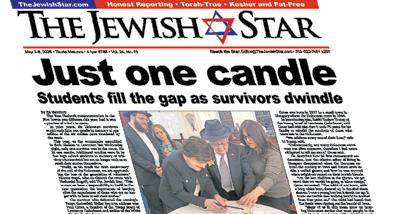
Jewish Star Torah columnists: •Rabbi Avi Billet of Anshei Chesed, Boynton Beach, FL, mohel and Five Towns native •Rabbi Binny Freedman, rosh yeshiva of Orayta, Jerusalem •Dr. Alan A. Mazurek, former ZOA chair, is a retired neurologist, living in Great Neck, Jerusalem and Florida.
Contributing writers: •Rabbi Sir Jonathan Sacks zt”l, former chief rabbi of United Hebrew Congregations of British Commonwealth •Rabbi Dr. Tzvi Hersh Weinreb, OU executive VP emeritus •Rabbi Yossy Goldman, president of the South African Rabbinical Association.
Contact our columnists at: Columnist@TheJewishStar.com
Fri July 11 / 15 Tamuz
Balak
Five Towns candles: 8:08 • Havdalah: 9:17
Scarsdale candles: 8:10 • Havdalah: 9:18
Sun July 13 / 17 Tamuz
Fast of Tamuz
Fri July 18 / 22 Tamuz
Pinchas Shabbat Mevarchim
Five Towns candles: 8:04 • Havdalah: 9:13
Scarsdale candles: 8:06 • Havdalah: 9:12
Fri July 25 / 29 Tamuz
MatotMasei
Five Towns candles: 7:59 • Havdalah: 9:07
Scarsdale candles: 8:00 • Havdalah: 9:05
Five Towns Candlelighting: From the White Shul, Far Rockaway, NY
Scarsdale Candlelighting: From the Young Israel of Scarsdale, Scarsdale, NY

The year is 1933. Two Jews are sitting in a Viennese coffee house, reading the news. One is reading the local Jewish paper, the other the notoriously antisemitic publication Der Stürmer.
“How can you possibly read that revolting rubbish?” says the first. The second smiles. “What does your paper say? Let me guess: ‘The Jews are assimilating.’ ‘The Jews are arguing.’ ‘The Jews are disappearing.’ Now let me tell you what my paper says: ‘The Jews control the banks.’ ‘The Jews control the media.’ ‘The Jews control Austria.’ ‘The Jews control the world.’ My friend, if you want good news about the Jews, always pay attention to the antisemites.”
An old and bitter joke. Yet it has a point and a history, which begins with this week’s parsha, Balak. Some of the most beautiful things ever said about the Jewish people were said by Bilaam: Who can count the dust of Jacob. ... May my final end be like theirs! ... How beautiful are your tents, Jacob, your dwelling places, Israel! …A star will come out of Jacob; a sceptre will rise out of Israel.
Bilaam was no friend of the Jews. Having failed to curse them, he eventually devised a plan that worked. He advised the Moabite women to seduce Israelite men and then invite them to take part in their idolatrous worship. In the subsequent plague that struck the people, 24,000 people died.
Bilaam is numbered by the rabbis as one of only four non-royals mentioned in the Tanach who are denied a share in the World to Come (Sanhedrin 90a). Why then did G-d choose that Israel be blessed by Bilaam?
Surely there is a principle, Megalgelim zechut al yedei zakai: (Good things come about through good people).” (Tosefta Yoma 4:12). Then why did this good thing come about through a bad man?
The answer lies in another principle, first stated in Proverbs (27:2): “Let someone else praise you, and not your own mouth; an outsider, and not your own lips.” Tanach is perhaps the least self-congratulatory national literature in history. Jews chose to record for history their faults, not their virtues.
Hence it was important that their praise come from an outsider, and one not known to like them. Moses rebuked the people. Bilaam,
In Judaism, religion and nationhood coincide.

the outsider, praised them.
That said, however, what is the meaning of one of the most famous descriptions ever given of the people Israel:
It is a nation dwelling alone, not reckoned among the nations. Num. 23:9
Ihave argued against the interpretation that has become popular in modern times, namely that it is Israel’s destiny to be isolated, friendless, hated, abandoned and alone, as if antisemitism were somehow written into the script of history. It isn’t.
None of the Prophets said so.
To the contrary, they believed that the nations of the world would eventually recognize Israel’s G-d and come to worship Him in the Temple in Jerusalem.
Zechariah (8:23) foresees a day when “ten people from all languages and nations will take firm hold of one Jew by the hem of his robe and say, ‘Let us go with you, because we have heard that G-d is with you’.” There is nothing fated, predestined, about antisemitism.
What then do Bilaam’s words mean? — “It is a nation dwelling alone, not reckoned among the nations.”
Ibn Ezra says they mean that unlike all other nations, Jews, even when a minority in a non-Jewish culture, will not assimilate. Ramban says that their culture and creed will remain pure, not a cosmopolitan mix of multiple traditions and nationalities.
The Netziv gives the sharp interpretation, clearly directed against the Jews of his time, that “If Jews live distinctive and apart from others they will dwell safely, but if they seek to emulate ‘the nations’ they ‘will not be reckoned’ as anything special at all.”
There is, however, another possibility, hinted at by another noted antisemite, GK Chesterton, who we have already mentioned in Beha’alotecha. Chesterton famously wrote of America that it was “a nation with the soul of a church” and “the only nation in the world founded on a creed.” That is, in fact, precisely what made Israel different — and America’s political culture, as historian Perry Miller and sociologist Robert Bellah pointed out, is deeply rooted in the idea of biblical Israel and the concept of covenant. Ancient Israel was indeed founded on a creed and was, as a result, a nation with the soul of a religion.
We discussed in Beha’alotecha how Rabbi Soloveitchik broke down the two ways in which people become a group, be it a camp or a congregation. Camps face a common enemy, and so a group of people bands together. If you look at all other nations, ancient and modern, you will see they arose out of historical contingencies. A group of people live in a land, develop a shared culture, form a society, and thus become a nation.
Jews, certainly from the Babylonian exile onward, had none of the conventional attributes of a nation.
•They did not live in the same land —
some lived in Israel, others in Babylon, yet others in Egypt. Later they would be scattered throughout the world.
•They did not share a language of everyday speech. There were many Jewish vernaculars, versions of Yiddish, Ladino and other regional Jewish dialects.
•They did not live under the same political dispensation.
•They did not share the same cultural environment.
•Nor did they experience the same fate.
Despite all their many differences though, they always saw themselves and were seen by others as one nation: the world’s first — and for a long time the world’s only — global people. What then made them a nation?
This was the question Rabbi Saadia Gaon asked in the tenth century, to which he gave the famous answer: “Our nation is only a nation in virtue of its laws (torot).” They were the people defined by the Torah, a nation under the sovereignty of G-d. Having received, uniquely, their laws before they even entered their land, they remained bound by those selfsame laws even when they lost the land. Of no other nation has this ever been true.
Uniquely then, in Judaism religion and nationhood coincide.
There are nations with many religions; multicultural Britain is one among many.
See Sacks on page 22

One summer morning, I had fun with my sons setting up a lemonade stand. We got the lemons, made a sign, bought the sugar and cups. They excitedly ran up to people walking by, asking if they wanted to buy some. It was a sweet scene. But if you had asked me whether it was a successful business venture, I’d have to say no. I lost money. The cost of materials far outweighed the profit. But that wasn’t the point. It was never about making money. It was
about time together, about connection. The lemonade stand was just a backdrop for the relationship. I wasn’t trying to calculate return on investment. I was simply enjoying being with my children.
This kind of mindset is exactly what the Jewish calendar challenges us to reflect on during the Three Weeks, a national period of mourning that begins with the 17th of Tammuz. These weeks mark the breaching of Jerusalem’s walls, the destruction of the Temple, and other tragedies.
There are two basic types of relationships that people have.
Some are transactional, like business partnerships. One person handles marketing, the other does operations. As long as both contribute and benefit, the partnership continues. But if the venture stops being profitable, the rela-
tionship often dissolves. These connections are built on performance.
But other relationships are rooted in something deeper. The bond between parent and child, siblings, or lifelong friends doesn’t depend on output. These connections are based on a soul connection. Even when one side is struggling, the relationship holds.
Iwant my children to know that my love for them doesn’t depend on grades or accomplishments. Of course I want them to thrive, but our relationship isn’t a business. They are not “nachas-generating machines.” Their well-being is far more important to me than SAT scores.
Jewish tradition teaches that our relationship with G-d is like that. The Torah says, “You are children to the L-rd your G-d” (Deuteronomy 14:1). That is not the language of employer and
employee. It is the language of family.
There is a powerful story in the Torah that illustrates this. The prophet Shmuel was born after his mother, Channah, prayed for years to have a child. According to commentaries, the Kohen Gadol Eli told her that Shmuel would have to leave this world, but reassured her that she would receive another son-maybe even a better one. A smarter one, one that would generate more accomplishments and nachas.
Channah responded, “For this child I prayed” (I Samuel 1:27). She didn’t want a replacement. Her love was not based on potential or on what Shmuel could accomplish. It was rooted in who he was. I poured my soul into this child. This is the child I want.
Now contrast that with Bilaam, who was

About a year ago, I penned a column focused on the famous words from this week’s parsha, Balak, “am levadad yishkon (a people that dwell apart or in solitude)” (Bamidbar 23:9), proclaimed by the evil prophet Bilaam, commissioned by King Balak to curse the Jewish people.
Later, Chazal debated whether this ultimately was a curse or a blessing. The Talmud
in masechet Sanhedrin 105b cites the disagreement whether the “curses” uttered by Bilaam were all converted to blessings (Rabbi Yochanan) or “reverted back“ to their intended curses, (Rabbi Abba bar Kahana) with the exception of “mah tovu ohalecha Yaakov (how goodly are your tents O’ Jacob)” (24:5), which all agree is an absolute blessing.
This prompted me to reflect on how often we as Jews cite the words of our most ruthless enemies, in our prayer, in our liturgy, in our mission statements. It seems strange to do so. We are at no loss for great prophets and kings, speakers and authors, poets, and lyricists; why borrow the words of our deadly antagonists?
This reflection was further compounded by
Don’t despair, hold on tight, we’re almost there.
the words coming from the same Bilaam, “Hen am k’Lavi yakum (Behold! A people that will rise like a lion cub),” found in our parsha (23:24), selected by the government of Israel and the IDF as the battle cry for its momentous mission against Iran.
This propensity to quote our enemies and reverse their intended wish for our destruction to
blessings is seen throughout our Jewish history and texts.
Besides the aforementioned references to Bilam, there was the evil Lavan, who we recall at the Passover Seder, as the one who wanted to “uproot it all.” Yet this vicious hater sent his sister Rivka off to eventually marry Yitzchak, son of Avraham, with the stirring blessing, “At hayii l’alfei revava (May you come to be thousands of myriads, and may your offspring inherit the gates of foes” (Bereishit 24:60). This blessing, so beautiful in its profundity and simplicity, a wish for many children, is traditionally given to Jewish brides at their bedekken, the formal veiling of the bride.

Frustration. Disillusionment. But also insight and a lifelong intellectual perspective. That is how I would describe the experience I am about to share with you.
It started with Fyodor Dostoevsky, the famous 19th century Russian novelist, author of Crime and Punishment, The Brothers Karamazov, and much more. His works were not part of the curriculum of the high school I attended. I came to his writing on my own.
How impressed I was! Here was a writer who really plumbed the depths of the human psyche. He grappled, not only with profound moral issues, but with questions of existential religious significance. I vividly remember reading Notes from the Underground, astounded by the fact that a gentile author, living in Czarist Russia, had so much to say to a Brooklyn yeshiva boy.
When I learned a bit about Dostoevsky’s background. I was stunned to discover that this perceptive, sensitive and gifted man was … a vicious anti-Semite. I had great difficulty in reconciling the discrepancy between the art (sophisticated and empathic) and the author (full of primitive hatred, which I experienced as aimed at me — after all, my ancestors lived in the towns and villages he describes, and not long ago).
Beneath the façade of the ‘gentleman’ lies the ‘agreement.’
I experienced this disillusionment time and time again in subsequent years. In college, I became enamored with the philosophy of Martin Heidegger, who was often acclaimed as the greatest thinker of the 20th century. When I learned of his support for the Nazi regime, I could no longer bring myself to even open his books.
This experience was repeated later in my education when I became familiar with the psy-
chology of Carl Jung, only to discover his complicated relationship with Jews and Judaism, and his pro-Nazi sentiments. What an exhaustive list of gifted men who possessed such talent when it came to humanity, yet who were so absurdly tainted by their active aversion to our people. It extends back in time to Martin Luther, persists through the music of Wagner and the history of Toynbee, and is certainly not lacking for contemporary examples.
Truth be told, the list goes back even further, to this week’s Torah portion, Parshat Balak, and the extraordinary and fascinating man named Bilam. If there is one lesson to learn from this week’s narrative of Bilam and his encounter with the Jewish people, it is this: A man can be a

Iremember, as a high school student, hearing our rosh yeshiva, Rabbi Shlomo Riskin, relate one of the questions he used to ask when interviewing prospective rebbeim for our high school.
Amidst a flurry of questions designed to test their knowledge of halachah and Talmud, he would ask them what they would do (and what the halachic requirement would be), if after ordering an electric shaver, they were accidentally sent two shavers. Many young rabbis would respond by delving into the question of whether, once the company sent the
extra shaver, they were giving it to you, and whether the laws of theft applied equally to non-Jews.
Needless to say, he was only interested in hiring as teachers those who responded, without thinking, that they would send it back.
Where is the balance between our quest to develop a deeper relationship with G-d on the one hand, and the importance of ethical excellence on the other? How can we ensure, not only in ourselves but in our children and students, that spiritual growth does not come at the expense of simple mentschlechkeit, the value of being a good person?
This week’s portion, Balak, gives us some valuable insight regarding this question, from a most unlikely source: Ma Tovu, traditionally recited as one enters the synagogue:
Ma tovu’ o’halecha Yaakov, mishke’no’techa Yisrael (How goodly are your tents, oh Yaakov;
and your dwelling places, oh Israel).
While six-year-olds in Hebrew school will likely be able to sing the opening words of the first stanza, most people don’t realize the source of these beautiful verses: Three thousand years ago they were recited by a nonJewish prophet who was bent on cursing the Jewish people and seeing their destruction, but who G-d caused to bless and praise them instead.
Fresh from its successes on the battlefield against the armies of Og and the Amorites, the Jewish people are about to encounter a perhaps even more sinister challenge.
Balak, king of Moab, realizes that the G-d of the Jews is too strong, and so he will never be able to defeat the Jewish people on the battlefield. So he approaches Balaam, a nonJewish prophet who, after initial hesitation,
agrees to climb the mountain overlooking the Jewish camp and curse the Jewish people in the name of their own G-d.
Balak reasons that if this people, blessed by G-d, becomes cursed by G-d, all their seemingly magical powers will disappear, and the Moabite armies will make short work of them. At first, G-d does not want to let Bilaam go, but eventually acquiesces, on condition that he will only say what G-d tells him to say.
Balaam travels to the mountain range of Emor, intent on cursing the Jewish people, but G-d performs a miracle and instead, beautiful words of blessing and praise pour forth, and the Jewish people’s destiny as a blessed nation is sealed forever.
Rashi suggests that there was something Balaam saw that caused him to bless the Jewish people. In other words, it wasn’t that G-d
Published weekly except during certain religious and civil holidays by The Jewish Star LLC New York City office: 5676 Riverdale Ave Suite 311, Bronx NY 10471 • LI office: 2 Endo Blvd, Garden City NY 11530
Here’s how to reach The Jewish Star — Write: Editor@TheJewishStar.com. Call: 516-622-7461 ext 291
Editor & Publisher: Ed Weintrob
516-622-7461 ext 291
Jewish Star Associate: Nechama Bluth
516-622-7461 ext 241
Content: The Publisher endeavors to ensure that our content is within the bounds of normative halachah and hashkafah. Anyone who feels anything we publish may be inappropriate in this regard is urged to bring the item in question to the attention of the Publisher.
Advertising is accepted at the sole discretion of the Publisher and should conform to standards appropriate for distribution in an Orthodox community.
Send us your news! Editor@TheJewishStar.com
Advertising: Publisher@TheJewishStar.com
Kashrut: The Jewish Star is not responsible for the kashrut of any product or establishment featured in its pages. If you have questions regarding any establishment or product, including its supervision, please consult your rabbi for guidance.
Submissions: All submissions become the property of The Jewish Star and may be edited and used by the Publisher, its licensees and affiliates, in print, on the web and/or in any media that now exists or will exist in the future in any form, including derivative works, throughout the world in perpetuity,
without additional authorization or compensation. The individual or entity submitting material affirms that it holds the copyright or otherwise has the right to authorize its use in accordance with The Jewish Star’s terms for submissions.
Opinions: Views expressed by columnists and other writers do not necessarily reflect the position of the Publisher or of The Jewish Star LLC.
Distribution: The Jewish Star is available free in kosher food establishments, stores, synagogues, and curb-side newsboxes on Long Island, in New York City and elsewhere. To request free delivery to your location, write Publisher@TheJewishStar.com.
Copyright: All content is copyright and may not be republished or otherwise reproduced without written permission by The Jewish Star LLC; to do so without permission is against the law and halacha. For content reproduction write to Publisher@ TheJewishStar.com.
The Jewish Star subscribes to the JNS news service. It, or its contributors, own the copyrights on material attributed to them. The length and content of JNS material and all other submitted material may be edited by The Jewish Star.
This newspaper contains words of Torah. While it is not considered shaimos, please dispose of it properly.

The New York Times committed an act of journalism recently, and many of its readers — and its staff — lost their minds. It reported the fact that Zohran Mamdani, the Democratic Party’s candidate for mayor of New York City, whose campaign successfully pitched him to the public as the Muslim-American and Indian-American candidate, had claimed to be an “African-American” on one of his college applications.
Since the partisan liberal readers of the Times are not used to seeing articles about the hypocrisies of their side’s standard-bearers, the story provoked an avalanche of left-wing rage. The subsequent cringe-inducing efforts of the paper to justify bringing to the attention of the public something that would — if it had been done by a Republican and conservative — been considered a heinous offense by the same people who are angry about it being made public speak volumes about our bifurcated political discourse.
The Times story has engendered a lively debate about journalistic standards (the information came to them via what is likely to have been an illegal Internet hack of private records), as well as what is considered acceptable when classifying an individual’s race. While these points are worth discussing, the dustup about which boxes the 33-year-old checked off 15 years ago when applying to school has obscured something far more important than what is essentially a minor scam.
What this kerfuffle should remind us of is the terrible consequences of the imposition of the woke catechism of diversity, equity and inclusion (DEI) on American society. Insisting that Americans are all essentially defined by race and ethnic origin — whether it concerns college
admissions, hiring employees, determining government funding and a host of other categories — is part of a Marxist effort to create a permanent race war between those deemed “people of color,” who are always victims, and “white” oppressors, who are always in the wrong.
In seeking “equity” between these groups rather than equal opportunity, which is the polar opposite, past injustices are not being redressed as much as the entire debate creates new ones.
An argument can certainly be made that Mamdani shouldn’t be blamed for trying to game the system. The truth, however, is that not only is he a hypocrite. His plans for transforming New York City into an economic experiment in socialism, coupled with his support for antiJewish and anti-Israel positions and organizations, flow from the same sort of toxic ideas that produced the application form that is now being criticized for his answers.
The issue isn’t so much whether or not Mamdani lied about being an African-American, but that the “progressive” doctrines that he champions are a singular threat to the racial peace and the future of the United States.
Should the Times have reported the leak of Mamdani’s application?
There is an argument that since the information was obtained by an illegal hack, it shouldn’t have been reported. But that is a standard that the mainstream press has never applied to any story that served its ideological or partisan agenda, dating all the way back to the Vietnam War and the Pentagon Papers. Why should it be used now, when it portrays someone on the left in a less-than-flattering light?
Who’s the racist?
But that begs the question of whether or not it is OK to talk about anyone’s racial background. It should be noted that in July of last year, the Times itself judged President Donald Trump’s discussion about then-Vice President Kamala Harris’s mixed racial background by a very different standard. At the time, the paper portrayed his comments asking whether someone who had also identified as Indian-Asian was authentically African-American as not merely unfair but something that invoked a “haunting and unsettling history” of racism.
Apparently, the Times does not consider it racist to raise the question of whether Mamdani is African-American.

Would anyone of the left think it’s acceptable for Elon Musk, a white person born in South Africa, to call himself AfricanAmerican? Mamdani claimed to be an African-American when applying to college. The Marxist danger he poses goes beyond that minor scam.
If you think “African” is a geographic construct, then Mamdani did nothing wrong. Considering that he was born in Uganda to parents who were Gujarati Indians who subsequently immigrated to the United States, Mamdani is African. But most Americans, especially those who identify as African-American — and when using
the term for consideration of both entry to academic schools and funding purposes — consider the term to apply to black people.
And so, they take a very different view of it. They see it as someone trying to gain an advantage by claiming an identity not fairly applicable in this instance. After all, no one on the left, including Mamdani, thinks that it’s acceptable for Elon Musk, a white person born in South Africa, to call himself African-American. Incumbent New York Mayor Eric Adams, himself a native black New Yorker, spoke for many in the AfricanAmerican community who regarded the application as racial (and potentially, financial) fraud.
The problem with Mamdani’s application was not so much a case of cultural appropriation as it was a system that allows wealthy people to gain an advantage over middle- and working-class Americans by means of identity politics. As a person of South Asian origin and a Shia Muslim, Mamdani was part of ethnic, racial and religious
minority groups. But as the son of a successful, Oscar-nominated documentary filmmaker and a tenured professor at Columbia University, he is also a child of privilege in terms of income and access to the educational system. Mamdani was seeking to be chosen for admissions at Columbia over other applicants who didn’t check as many boxes on the DEI list of favored minorities.
That’s both unfair and increasingly unviable in a country where so many Americans fit into more than one racial or ethnic category. And whether or not that’s true, a country where we are primarily defined by skin color or our ethnic or religious origins is one in which freedom is replaced by a destructive woke race consciousness.
As it happened, Mamdani wasn’t accepted at Columbia and instead spent his college years at Maine’s Bowdoin College, where he led the chapter of Students for Justice in Palestine — an organization that doesn’t merely support the destruction of the State of Israel, but also routinely engages in antisemitic blood libels and incitement.
This is, after all, the same man who now advocates for charging those who live in “whiter” neighborhoods with higher property taxes than those who live elsewhere, an inherently discriminatory and racist proposal. He’s also the same person who supports the Palestinian war on the existence of the one Jewish state on the planet because he considers it unacceptable for Jews to
See Tobin on page 23
THANE ROSENBAUM
Distinguished University Professor Touro College

It all started with a music festival in southern Israel where peace-loving teenagers spent the night under the stars and awoke to barbarians wishing them their final good morning.
What occurred on October 7, 2023 was unimaginable: the slaughter, beheading, and gangraping of kids — some even younger than the concertgoers, who lived in neighboring villages and were similarly attacked, ransacked and set on fire.
Allow that to sink in for a moment. It bears mindboggling contemplation. This form of inhumanity is not easily absorbed.
Who would do such things? And who would learn of such things and feel nothing? Millions around the Western world were unable to summon the human impulses necessary to direct proper moral outrage at Gaza and sympathy for the nation it invaded so monstrously.

Nothing Israel had ever done could possibly justify such an otherworldly assault. Those claiming to be pro-Palestinian held signs suggesting that the massacre was “necessary resistance.” Really, beheadings and the gangraping of teenagers? These are “progressives”?
Hamas supporters were in the audience at concerts and performing on musical stages.
Soon thereafter, Israel’s justified retaliation was assiduously scrutinized and roundly condemned. Meanwhile, Hamas showed neither remorse nor any indication that they were finished with their attack upon the Jewish state.
In fact, despite Israel’s superior fighting force, Hamas, Islamic Jihad and the vast majority of Gazans vowed repeat performances of October 7 — “again and again.” They continued launch-
ing rockets at civilian population centers. Israeli and American hostages were held captive in underground terrorist lairs. Palestinian terrorists, often assisted by their own “civilians,” refused to release them.
All the while, antisemites in Western nations tore down posters intended to remind the world of those hostages. Their perilous situation did not matter. Returning them to safety was seen as superfluous. Given the world’s hatred of the Jewish state, they were paying the price for Israel’s very existence.
One would think that if there was any solidarity with the victims of the Nova Music Festival, it would come from college-aged students who also enjoy attending musical concerts. But the opposite proved to be true: the most ardent supporters of Hamas were found on college campuses, in the audience at concerts and performing on musical stages.
American teenagers were actually rooting for the terrorists who murdered and raped Israeli teenagers — not religious zealots or West Bank settlers, but people just like these teens!
In a fatal musical twist, youthful Hamas and Hezbollah flag-bearers attend concerts to be serenaded by bands that have incorporated Jewhatred into their set lists. It gives altogether new meaning to having a bullet attached to a band’s Billboard ranking.
In a fatal musical twist, youthful Hamas and Hezbollah flag-bearers attend concerts to be serenaded by bands that have incorporated Jew-hatred into their set lists. It gives altogether new meaning to having a bullet attached to a band’s Billboard ranking.
At this year’s Glastonbury Festival in the United Kingdom, which has hosted the biggest acts in contemporary music at their annual summer concert series since 1970, two bands played to the cheap seats where they found many antisemitic fans willing to sing along. Kneecap and Bob Vylan each treated audiences to proHamas harmonies and anti-Israel incitement.
The British punk-rap duo, Bob Vylan, held microphones toward the audience to pump up the volume on, “Death, death to the IDF!” and “Free, free Palestine!” Palestinian flags were aplenty. One of the bandmates shouted, “Hell yeah, from the river to the sea. Palestine must be, will be in-
See Rosenbaum on page 23
GLOBAL FOCUS
BEN COHEN

Nearly 200 years separate Richard Wagner, the German composer who revolutionized the opera, from Bob Vylan, a musical duo from the English city of Ipswich presently attempting to revive the spirit of punk rock.
You might wonder what Wagner and Vylan are doing in the same sentence, given the vast distance between them historically and musically, not to mention the horror that would undoubtedly grip Wagner were he to find himself being bracketed with two dreadlocked black men.
Consider their words.
Richard Wagner, “Judaism in Music,” 1850:
Never does the Jew become aroused in merely sentimental expression with us. If he ever becomes excited at all, it is on behalf of some special and selfish interest.
Bob Vylan, onstage rant, Glastonbury Festival, 2025
The portrayal of Jews as unwelcome interlopers in the art world is alive and well.
I worked for a record label, and it’s funny, because the boss of the record label, we would talk every so often, and he would speak very strongly about his support for Israel. He was treading on that line. And then this list of names came out recently of people trying to stop our mates Kneecap from performing here tonight. Who do I see on that [expletive] list of names but that baldheaded [expletive] I used to [expletive] work for. So, look, we’ve done it all, from working in bars to working for [expletive] Zionists.” Wagner, as is widely known, was a committed antisemite.
Adolf Hitler, born in 1889, a few years after Wagner died in 1883, cherished the composer as a “god. … I go to his operas as others go to church.”
In his 1850 screed “Judaism in Music,” Wagner asserted that Jewish cultural influence was rooted in their financial power rather than artistic merit. According to him, the technically proficient contributions of Jewish composers were offset by the Jews’ status as eternal outsiders, meaning that Jewish music could never achieve the stirring heights of the music composed by artists from “organic” cultures like his native Germany.
Much the same point was made by Pascal Robinson-Foster, Bob Vylan’s singer, when he lacerated the unnamed Jewish boss at an unnamed record company during his onstage rant last weekend at the famed annual Glastonbury Festival in England.
Robinson-Foster’s antics — making his largely unknown band world-famous in the space of about an hour — drew attention primarily because he led the crowd in a chant of

“Death, Death to the IDF!” This chilling spectacle, reminiscent of a Nazi rally, meant that his expletive-laden comments about “Zionist” influence in the music industry drew comparatively less focus.
Like Wagner, Robinson-Foster regards Jews in the music industry as inherently suspect aliens because their identification with Israel — “The only country I know stolen by ignorant scum, trying to lay claim to a land that ain’t
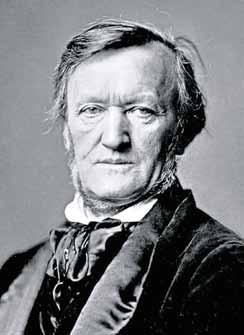
theirs,” he told the Glastonbury crowd — is, in Wagner’s words, a “special and selfish interest.” Just as Wagner regarded this as a malign influence, so, too, does Robinson-Foster. Just as Wagner indulged in ugly tropes about the appearance and behavior of Jews, so does Robinson-Foster — dangling before a riled-up crowd the image of a pushy, loud-mouthed, follically challenged Jewish boss whose employees are
See Cohen on page 22

For much of last week, Britain was consumed by the appalling spectacle at the Glastonbury festival when the rap duo Bob Vylan led chants by thousands of festival-goers of “Death, death to the IDF,” as well as making vicious remarks about Jews and Zionists.
Even though incitement to murder crossed a red line among politicians and commentators, many still qualified their revulsion by asserting that Israel’s behavior in the war was beyond the pale.
A minister in the Labour government, Wes Streeting, declared: “While there’s no justification for inciting violence against Israelis, the way in which Israel’s conducting this war has made it extremely difficult for Israel’s allies around the world to stand by and justify. … I’d also say to the Israeli embassy, get your own house in order, in terms of the conduct of your own citizens and the settlers in the West Bank.”
Yet it’s precisely that demonization of Israel, based on an unending onslaught of serial lies and distortions about its behavior, that served to incite thousands to endorse the murder of Israelis.
A further example of that was provided when Channel 4 TV screened a film about the
Gaza Strip. The BBC had abandoned its plan to broadcast this “documentary” after it discovered that the narrator was the son of Hamas’ deputy minister of agriculture, and others involved in it were also tied to Hamas. The film was pure Hamas propaganda, alleging that the Israel Defense Forces deliberately bombed Gaza hospitals without acknowledging that they had all been turned into Hamas terrorist hubs and thus were legitimate military targets, as well as examples of Hamas war crimes.
Yet not only did Channel 4 air this travesty, but more than 400 entertainment stars and media figures, including 111 BBC journalists, signed a letter to the BBC’s management claiming that its decision to drop the Gaza film “demonstrates, once again, that the BBC is not reporting ‘without fear or favor’ when it comes to Israel.”
They even called for the removal of a BBC board member, Robbie Gibb, because until 2024, he had been on the board of the Jewish Chronicle, and this, they claimed, had a “conflict of interest.”
Given the endemic hostility towards Israel of the BBC and the venomous distortion of its reporting, the signatories’ claim was quite Orwellian and reflected what can only be described as the deranged discourse of the obsessive Israel-haters.
To all this, however, many in Israel and America may shake their heads sadly and then file it under the classification of “bad things happening in other places.” This is because there’s
While antisemites are impervious to reason, decent people absorb the lies about Israel because they have never been told the truth.

a widespread feeling among many in Israel and America that Britain is now a lost cause altogether and therefore has no relevance to themselves.
Looking at the Labour government’s boycott and sanctions against Israel, or the election of five members of parliament on a “Gaza-Palestine” platform, or the refusal by the British police to hold to account those on the street chanting to “Globalize the intifada” while arresting people for posting on socialmedia critical comments about Muslims, many in America have concluded that Britain has
simply collapsed under the weight of its Muslim community’s radicalism.
As for the Israelis, they can scarcely conceal their impatience and contempt for Britain. The fact that Israel is fighting a terrible war — with the feeling that it’s now playing for enormous and potentially transformative stakes in the region — has only exacerbated its already infamous inability ever to provide an adequate, coherent and speedy rebuttal to the tsunami of lies that constitute the default British narrative about the Jewish state.
See Phillips on page 23

Ihave a beef with HIAS. The organization was long known as the Hebrew Immigrant Aid Society before it was renamed as a Hebrewless acronym in 1975 as an undefined acronym. This refugee agency aided hundreds of thousands of Jews for more than a century. It is likely that the ancestors of many readers of this piece — and it is certainly true of mind — benefited at Ellis Island in New York or the port of Galveston in Texas from the intervention and aid of HIAS. I have no beef with that, only gratitude.
Other readers who are descendants of Holocaust survivors or who emigrated from the Soviet Union also likely benefited from HIAS. Here, too, only gratitude.
In recent decades, HIAS expanded its mission to aid primarily non-Jewish refugees.
Its website says that since 1975, and even more so since 2000, it prioritized assistance to refugees and immigrants of all religions, ethnicities, nationalities and backgrounds. In 2018, the very large majority of such refugees were non-Jewish. No problem here, either, since the Jewish refugee issue has largely vanished, and agencies that do good things
have a right to alter their mission.
HIAS is currently active in opposing the Trump administration’s aggressive policy to deport immigrants. I would take a more nuanced approach than either HIAS or the administration, but I have no problem with HIAS, as a refugee agency with a long and distinguished history, acting according to its best lights.
Here’s my beef.
What is “HIAS?” It is “HIAS,” nothing else. Its Wikipedia entry is now found under HIAS, noting that it was “founded” as the Hebrew Immigrant Aid Society. By its very name, HIAS no longer raises a Jewish banner. It no longer speaks to the world as Jewish. It is no longer “Hebrew.” It no longer says to refugees, “It is Jews who are helping you.” It is no longer the agency that aided my ancestors and yours. HIAS no longer projects itself as a Jewish effort.
For all intents and purposes, the Hebrew Immigrant Aid Society no longer exists.
HIAS is not an abbreviation. ADL stands for Anti-Defamation League, the organization’s official name. JFNA stands for Jewish Federations of North America. JCC stands for Jewish Community Center. The full name is the real name. HIAS stands for nothing, just HIAS. It is not a convenient abbreviation. It is a symbol and a symptom of assimilation. Proud Jews don’t reduce their identity to official, bland acronyms.
One would think that if one’s current mission is to aid “immigrants of all religions, ethnicities, nationalities and backgrounds,” one would find it valuable for all of these citizens of the world to know that the “Hebrew Immigrant Aid Society” provided the aid. One would think that the good name of the Jewish people is worth disseminating.
Here is a beautiful opportunity to counter an-

tisemitism, but it is squandered behind the sterile, opaque letters “HIAS.” Immigrants “of all religions, ethnicities” who are HIAS’ beneficiaries do not know that “Hebrew” is behind the chesed.
The transmogrification of the Hebrew Immigrant Aid Society into HIAS is another example of the illusion that the universal can supplant, rather than complement, the particular. When the Jewish banner is set aside, Jewish life shrinks.
If the Hebrew Immigrant Aid Society changed itself into HIAS, then HIAS can change itself back into the Hebrew Immigrant
Aid Society. It should, for the sake of pride in the Jewish people and the projection of Jewish ethics into the world.
It is not enough for Jews to do good; it is necessary for Jews to be seen doing good. The name says it all.
HIAS says nothing. Hebrew Immigrant Aid Society says everything.
Rabbi Goldberg is editor and publisher of the Intermountain Jewish News, for which he has been writing award-winning commentary for over 50 years.
Write: Columnist@TheJewishStar.com

Where you work is less important than what you accomplish.
Our editorial and marketing positions are hybrid, offering flexibility.
You can make a great impact on New York’s Orthodox communities from your local park, or Starbucks,
or your home office, as well as at our well-equipped, congenial workplaces in Garden City and Riverdale where our teams collaborate and inspire each other.
Don’t be put off by the daily grind of highway traffic or by the LIRR, Met-
roNorth or NYC Transit. If a Jewish Star position calls out to you, you owe it to yourself to call back.
Enjoy working for a media company devoted to honest journalism, whose goals are Torah-true, and where all Jewish holidays are observed.
View current openings on our website at www.thejewishstar.com/jobs.html
Continued from page 19
forced to listen to his speeches about Israel in order to keep their jobs. When he growls the words “f**king Zionists,” that is the image he wants us to see in our minds.
For Wagner, Judaism represented, as the great scholar of antisemitism Robert Wistrich wrote, “egoism, Mammon, parasitism and the bloodthirsty urge for domination.” Zionism, the preserve of “ignorant scum,” fulfills the same function for Robinson-Foster.
The subsequent furor around Bob Vylan’s performance generated more heat than light. There was the usual turgid, frustrating debate about whether we were dealing with “antisemitism” or just “criticism of Israel.” The episode raised more questions about the role of the BBC, which shamefully refrained from pulling its livestream, leading some British members of parliament to demand the resignation of their
Continued from page 16
There are religions governing many nations; Christianity and Islam are obvious examples.
Only in the case of Judaism is there a one-toone correlation between religion and nationhood. Without Judaism there would be nothing (except antisemitism) to connect Jews across the world. And without the Jewish nation Judaism would cease to be what it has always been, the faith of a people bound by a bond of collective responsibility to one another and to G-d. Bilaam was right. The Jewish people really are unique.
Nothing therefore could be more mistaken than to define Jewishness as a mere ethnicity. If ethnicity is a form of culture, then Jews are not one ethnicity but many. In Israel, Jews are a walking lexicon of almost every ethnicity under the sun. If ethnicity is another word for race, then conversion to Judaism would be impossible (you cannot convert to become Caucasian; you cannot change your race at will).
What makes Jews “a nation dwelling alone, not reckoned among the nations,” is that their nationhood is not a matter of geography, politics, or ethnicity. It is a matter of religious vocation as G-d’s covenant partners, summoned to be a living example of a nation among the nations, made distinctive by its faith and way of life.
Lose that and we lose the one thing that was and remains the source of our singular contribution to the heritage of humankind.
When we forget this, sadly, G-d arranges for people like Bilaam and Chesterton to remind us otherwise. We should not need such reminding.
national broadcaster’s director-general. Some larger issues, however, have gone unaddressed. For example, there’s the simple fact that even though Robinson-Foster’s outburst hit the headlines within minutes, the Glastonbury Festival continued undisturbed. Away from the peripheral stage that hosted Bob Vylan’s performance, Neil Young, Alanis Morissette, Rod Stewart and Olivia Rodrigo all wowed the crowd. In the very location where hours earlier chants urging the killing of Israelis had erupted — and where a speech laced with antisemitic imagery had been received with wild applause — whatever stain that might have registered had been lifted by nightfall.
Then again, why be surprised? If the 1972 Olympics in Munich continued merrily on after 11 Israeli athletes were murdered by Palestinian terrorists, why would it be any different at a music festival where all that occurred was mere antisemitic rabble-rousing? You might retort that all this began with the murder and rape of more than 1,000 Israelis, including more than 300 young people at a music festival, and that their
If a relationship ends when the business breaks down, it was never real to begin with. But if, even at our lowest point, we still turn to reconnect, that means it was never about the business. It was always about the bond.
Dovid HaMelech said in Tehillim (34:19), “Hashem is close to the brokenhearted.” Even when I feel far away, I still look toward Him-and the eyes of Hashem are looking at the world, seeking to link up with mine.
As we move through this season of reflection and mourning, let us remember what has never been lost. Our relationship with G-d is deeper than a contract. It is not a performance review. It is a connection between a people and their Creator, between children and a parent. That connection is not severed by failure. If anything, it becomes clearer in those very moments.
That is the message of the 17th of Tammuz. And it is what gives us the strength to keep moving forward-not because we are earning love, but because we are living it.
Rabbi Benny Berlin is spiritual leader of BACH Jewish Center in Long Beach.
Write: Columnist@TheJewishStar.com
Continued from page 17
hired to curse the Jewish people. He saw the nation and judged them based on output. According to the Midrash, he even built seven altars to show that he could offer G-d more than the Jews ever did. His message was clear: if this relationship is about productivity, I can deliver more. But he misunderstood the nature of the bond. G-d’s connection to the Jewish people was never based on results. It wasn’t about performance or profitability.
That is what makes the 17th of Tammuz so significant. On the surface, it marks failure. The offerings stopped. The structure fell apart. The business failed. But in that moment of collapse, something deeper was revealed. If the relationship had been based on what we could offer, it would have ended then and there.
But it didn’t. We are still here. Still praying, still hoping, still trying. That tells us something powerful.
blood is ultimately what stains Glastonbury.
Of course, that assertion will be hatefully dismissed by those who believe the Hamas atrocities in Jewish communities in southern Israel on Oct. 7, 2023, were an act of noble resistance, followed by a “genocide” waged by Jews.
Then there is the question of the music industry itself. Bob Vylan and their Irish mates, Kneecap, are hardly the first contemporary musicians to have toyed with antisemitism. Compared to Kanye West, their efforts seem paltry. The same goes for former Pink Floyd frontman Roger Waters, whose hatred of Israel long ago descended into the depths of antisemitic conspiracy theories. I could also mention Brian Eno, Lorde and Massive Attack among many others.
The point is that Wagner’s portrayal of Jews as unwelcome interlopers in the creation and appreciation of art — because their mean, narrow-minded, self-centered spirit is antithetical to artistic greatness — is alive and well. Once personified by the “financier,” in this generation, this long-established Jewish hate figure
its conclusion, “u’vagoyim lo yitchashav (and not be reckoned among the nations)” — not to be punished or destroyed with the other nations, not to be dependent on the other nations, but as sefer Yeshayahu (42:6) tells us, to be “l’or goyim (a light unto the other nations).”
Being alone doesn’t mean being unengaged. It means, as we have always been, alone in our belief in the One True G-d and His Holy Torah, welcoming friends, allies, converts, and adherents, but proud and brave to take up the battle against those who would deprive us of our lives, liberties, beliefs and futures. It means being alone as a united people, despite our differing opinions, fighting those who would destroy us.
Further proof of this is found in the very words of Bilaam later in our parsha, in chapter 24:
Verse 5: “Ma’tovu ohalecha Yaakov (How goodly are your tents O’ Jacob).”
Verse 8: “It is G-d who took him (Yaakov) out of Egypt, according to the power of his loftiness. He (G-d) will consume the nations that oppress him, and crush their bones, and his arrows shall pierce them.” Bilaam here is openly acknowledging G-d‘s power to redeem His people, Israel, and crush all her enemies!
And then, if you didn’t already get it…
has morphed into the “Zionist.”
There have been tough consequences for the offenders. Forthcoming Bob Vylan concerts in the United Kingdom, Germany and France have been abruptly canceled. Their visas to enter the United States for a 26-date tour in October have been revoked by the US State Department, as have those for Kneecap, who were due to perform in New York City later this year. All this is welcome; both the enforcement of the law and the decisions freely taken by music venues not to host these bigots.
But bans and cancellations won’t deal with the underlying problem. The loathing of Jews has been a feature of artistic life for centuries — not just music, but literature, painting, theater and cinema as well. What’s billed as “antiZionism” is just the latest incarnation of this same loathing, providing a soundtrack for the feverish environment in which Diaspora Jews find themselves these days.
Ben Cohen is a senior analyst with the Foundation for Defense of Democracies.
Write: Columnist@TheJewishStar.com
there is an essential message in it. The message is that we dare not assume that we need only fear anti-Semitism at the hands of maniacs, fanatics, or ignoramuses. Quite the contrary! Sophisticated, educated and highly cultured individuals can also detest us and conspire to destroy us.
This is the lesson of the Holocaust. True, Hitler was hardly an intellectual or artistic giant. But his evil genius lay in his ability to realize that the most advanced civilization in the history of the world would eagerly abide by his murderous vision, that German art, literature, philosophy and religion was just a veneer.
In terms of this week’s Torah portion, Balak, he knew what Balak knew: That there are individuals with
•Strong religious commitments: “I cannot go beyond the word of the L-rd my G-d to do anything small, or great.” (Numbers 22:18)
•A direct spiritual channel to the Divine: “And G-d came unto Bilam at night, and said unto him.” (ibid. verse 20)
•Inventive skills sufficient to create a phrase which we ourselves adopted to preface our daily prayers: “How goodly are thy tents, O Jacob…” (Numbers 24:5).
Continued from page 17
Even the evil Eisav, arch nemesis of our forefather Yaacov, is the first and I believe only character in all of Tanach to address his own brother face-to-face with the loving appellation, “achi (my brother).” In Breishit (33:9), at their meeting after a long absence, Eisav says to Yaacov: “I have much, achi, let what you have remain yours.”
This may be the biblical source for every Israeli, addressing his fellow Israeli whether they know each other or not, as “achi,” my brother. Other examples abound.
The point is, language is powerful. That is why we have so many rules and warnings over the ravages of slander and gossip (rechilut and lashon hara). That is why we have so many laws about false or unintended oaths or curses and ways to rescind or negate them.
Balak knew this. Bilaam knew this. That is why they tried to use it as a weapon against us, to curse us, to destroy us.
What’s more, if you can co-opt your adversaries’ language, it’s even more powerful. The Islamist left has co-opted the term “diaspora” to the “Palestinian cause”; they say they are victims of a “holocaust, a genocide” and Jews are the “Nazis.”
We must do everything we can to overcome and obliterate their false and misleading narrative — but we also take their language, not to use as a curse to them but as a positive message for us.
They say of us that we are “nation who dwell apart”? Yes, apart, but not alone. We need to continue that verse (Bamidbar 23:9) to
Verse 9: “He crouched, and lay down like a lion, and, like a lion cub — who can stand him up? Those who bless you are blessed and those who curse you are accursed.” No matter what Bilaam says, we win! If he blesses us, we are blessed; if he curses us, he is cursed.
Which allows us to return to sefer Yeshayahu 42:6 (providentially the haftara for parshat Bereishit recited the Shabbat immediately after October 7!) noted above: At the End of Days, “I am Hashem; in righteousness have I called you and taken hold of your hand; I have protected you and appointed you to bring the people to the covenant, to be a light for the nations.”
We are not alone; G-d has taken us by the hand, leading us, protecting us, so that we can bring that light of wisdom, peace and understanding unto the nations.
Don’t despair, hold on tight, we’re almost there.
Shabbat Shalom
Dr. Alan A. Mazurek is a retired neurologist, living in Great Neck, Jerusalem and Florida. He is a former chairman of the ZOA.
Write: Columnist@TheJewishStar.com
Continued from page 17
universally acclaimed spiritual leader, and a gifted poet and orator with prophetic powers almost identical to those of Moses, and simultaneously be a vile antisemite, capable of genocidal schemes. Read this week’s parsha very carefully, for
But in actuality, they are no more than “hired guns,” and beneath the façade of the “gentleman” lies the “agreement” to discriminate, persecute, murder and exterminate an entire people.
It is a difficult lesson to accept. But our history has long established its deep-rooted veracity and its urgency, clearly based on the story we read this Shabbat.
Write: Columnist@TheJewishStar.com
Continued from page 17
just spoke through Balaam’s vocal chords, because then it wouldn’t have been Balaam blessing the Jewish people, it would have been G-d. Rather, Balaam saw something that actually caused him to want to bless the Jewish people.
What was it that caused even an evil prophet like Bilaam, motivated by bribery (Balak was willing to pay a huge sum for his curse), to want to bless the Jews? Rashi relates that Bilaam noticed that amongst all the Jewish tents, there was not one single tent opening that faced another tent opening. In other words, no one’s tent opening looked into anyone else’s.
Modesty and valuing someone else’s privacy is important, to be sure, but is this what caused Balaam to bless us? And is this so important that it becomes the theme of the beginning of our prayers every day?
Given the massive size of the Israelite camp — with 600,000 men between the ages of 20 and 60 recording by Torah as having left Egypt, plus everyone else, there would have been hundreds of thousands of tents! How could Bilaam look at every tent and know there was not a single tent that faced another’s opening?
The easiest way to ensure that no tentopening faced another would be to have them all face the same way. Balaam saw rows of tents that must have stretched for miles, all facing the same direction. Which means there would have been a system for their encampment.
This must have been a new phenomenon to have so impressed Balaam — that an army, indeed an entire nation, took the time to set up their tents facing a particular direction, to such an extent that it was visible to the naked eye from a distant mountaintop.
And perhaps this is why we recite these verses when we enter our synagogues, because 3,000 years ago, a people entered the scene with a different set of priorities. And whenever they laid camp, they actually had a system designed to ensure that no one person’s privacy was compromised at the expense of another.
It is easy, when entering shul to become so focused on the awesome challenge of developing our relationship with G-d, that we forget the person sitting right next to us. And it is equally understandable, with all the prayers in our hearts for ourselves and our loved ones, to forget what it is really all about. But a careful look at the beginning of the Jewish prayer book will make abundantly clear Judaism’s focus on our relationships with our fellow human beings.
The Talmud tells us that the second Temple was destroyed through blind, wanton hatred, or sinat chinam. It is difficult to understand how any hatred can ever be chinam, which seems to mean “for no reason at all.”
The Netziv suggests that this wanton hatred refers to disliking or even detesting someone because their views are different. This becomes critical because Rav Kook suggests that if the Temple was destroyed through sinat chinam then it will only be rebuilt through ahavat chinam, or wanton, baseless love. This may mean that the secret to a better world is simply learning to see the common ground and the beauty in someone else’s viewpoint, however different it may be from our own.
And so it is Balaam, the most unlikely of sources, a non-Jew who seems to detest all that we stand for, who is given the opportunity to see things in an entirely different way.
And maybe this is why we do not traditionally recite the Ma Tovu at home in private prayer, but rather when we enter the synagogue and join the community.
The Torah does not really tell us where we can find G- d, but it does tell us that every human being is created in the image of G-d. Allegorically, there is a little piece of G-d inside every human being — Jew or Muslim, Christian or Buddhist, friend or foe. And if we cannot see the little piece of G-d inside the person standing next to us, we will have a hard time finding G-d anywhere.
Rabbi Binny Freedman is Rosh Yeshiva of Orayta in Jerusalem. A version of this column was previously published.
Write: Columnist@TheJewishStar.com
have their own nation, a standard he and other “progressives” don’t apply to any other people or country.
Nor are these isolated positions. They are part of a mindset, often articulated by his Marxist father and mother, who joined an effort to
prevent Gal Gadot from appearing at the Oscar Awards ceremony simply because she is Israeli, that sees both America and Israel as illegitimate settler-colonialist states.
The self-avowed Democratic Socialist’s campaign shouldn’t be judged because he was someone who tried to play the DEI intersectional race game to his advantage when he was a teenager. He is a person whose entire life and political career revolve around an attempt to impose these toxic ideas on every aspect of society.
The consequences of such policies have already been made obvious by the events of the last 21 months since the Hamas-led Palestinian Arab attacks on southern Israeli communities on Oct. 7, 2023. Mamdani cheered on pro-Hamas mobs on college campuses that targeted Jewish students for intimidation and violence. They did so because they had been indoctrinated in the left’s big lies about Israel being a “white” racist settler-colonialist “apartheid” state, as well as because they believed the biased coverage of the post-Oct. 7 war in legacy corporate media like the Times.
This is exactly the problem that President Trump is trying to grapple with in his conflicts with elite institutions like Harvard University and Columbia. It’s not just that these schools are being given billions of dollars in federal funds while illegally discriminating against Jews by tolerating or encouraging antisemitism.
The progressive capture of major institutions of American life, like the arts and education, didn’t so much enable the surge of antisemitism as make it inevitable. Yet the leftist culture that produced Mamdani not only threatens Jews; they are but the canaries in the coal mine. The assault on the canon of Western civilization that Mamdani’s Marxist beliefs embody is a problem that transcends the peril it poses to Jews.
A New York in which the candidate’s ideas prevail is one in which racial division is paramount and the values of individual liberty that are the foundation of the American republic are trashed. And since his fellow Democratic Socialists Sen. Bernie Sanders of Vermont and Rep. Alexandria Ocasio-Cortez of Queens and the Bronx, lead a faction that seeks to control not just New York but the national Democratic Party, this is a problem that should concern all Americans.
Zohran Mamdani’s college applications shouldn’t matter, but race-hucksters and DEI racists like him aren’t just hypocrites. The controversy that the scrutiny of this period of his life produced highlights exactly why leftist ideologues like him are a threat to everyone.
Write: Columnist@TheJewishStar.com
shallah, it will be free.”
About 20 minutes into the set of another band, Kneecap, an Irish rap group with an even more ignominious pro-Hamas history, one of its bandmembers interrupted the show to remind the audience of the band’s ravenous hatred of Jews.
“I don’t have to lecture you people,” he said to the assembled tens of thousands. “Israel are war criminals!”
This same rapper is already facing terrorism charges for holding a Hezbollah flag while onstage at a show in London. He topped off one of his songs with, “Up Hamas! Up Hezbollah!” Hezbollah is a banned terrorist organization in the United Kingdom. Displaying its symbols is a crime.
In April at Coachella, the annual concert series in southern California, Kneecap showcased “[explative] Israel, free Palestine” on a big screen to thunderous applause. Supporting terror was suddenly part of their act. Everyone was now on notice what to expect onstage as a sidenote to the music.
The Board of Deputies of British Jews urged Glastonbury Festival organizers not to give
Kneecap a platform to spread their odious messages. British Prime Minister Keir Starmer felt similarly that it was “not appropriate” for Kneecap to perform.
They were right, but the Glastonbury Festival refused to kneecap Kneecap. Its frontman instructed fans to mob the legal proceedings on the terrorism charge in London and “start a riot” outside the courthouse.
Palestinians always manage to attract such charming people to their cause.
These antisemitic antics at Coachella, London and Glastonbury came with consequences, however. Kneecap lost its United States booking agent. Visas for future entry into the United States have been revoked. The State Department advised, “The secretary of state has been clear – the US will not approve visas for terrorist sympathizers.” Kneecap has a 21-day American tour scheduled for the fall. They will have to reapply for those visas. Such pleas from this Jewhating band will probably — one hopes — fall on deaf ears.
Already, festivals and venues have scratched the band from their lineups. Bob Vylan’s American tour has been scrapped, too.
Undeterred, Kneecap released a statement proving that the fighting Irish nowadays only raise their fisticuffs for Israel.
“Since our statements at Coachella — exposing the ongoing genocide against the Palestinian people — we have faced a coordinated smear campaign. … They weaponize false accusations of antisemitism to distract, confuse, and provide cover for genocide.”
Meanwhile, the police have launched criminal investigations against both Bob Vylan and Kneecap for their Glastonbury “performances.” Campaign Against Antisemitism, a nonprofit, is accusing the Glastonbury organizers of breaching its license by knowingly allowing such inflammatory incitements on its stage.
The BBC, which aired the Glastonbury Festival live, issued a statement: “The BBC respects freedom of expression but stands firmly against incitement to violence. The antisemitic sentiments expressed by Bob Vylan were utterly unacceptable.” Prime Minister Starmer called the words “appalling hate speech.”
One thing is for certain: Hamas supporters — whether in the United States or the United Kingdom, whether on college campuses or at large concert venues — believe that inciting hatred against Jews is a simple matter of free speech. Whether Jews should live or die is merely a matter of opinion, a point to be openly debated — whether on placards or through musical soundboards.
October 7 was the world’s first pogrom where music reverberated in the ears of its young victims. Israel’s very own “American Pie.” Today’s lyrics calling for the death of Jews will forever recall that fateful date when the music died.
Thane Rosenbaum is Distinguished University Professor at Touro University.
Write: Columnist@TheJewishStar.com
Asignificant element within the Israeli political class has always said that, since British culture is historically and ineradicably antisemitic, it’s not even worth trying to try to change British attitudes.
This is a very bad mistake. While antisemites are impervious to reason, many decent people in Britain have absorbed the lies about Israel because they have never been told the necessary truths. This lethal vacuum of information means that even some in the Jewish community who have been supporters of Israel are now succumbing to the daily onslaught of lies, distortions and gaslighting by believing that these lies represent reality and that Israel has “gone too far.”
It’s also a bad mistake to think that what happens in Britain stays in Britain. It remains the
cultural leader of the English-speaking world. What happens in Britain has a habit of becoming what happens in America, as well as in Canada and Australia.
And the same forces of what’s called the “redgreen alliance” between the left and radical Islam that have long been at work in Britain are also at work in America. Just as this alliance has captured the British Labour Party, so it has captured America’s Democratic Party.
Evidence of this was sharply provided by the election of the Islamist and hard-left Zohran Mamdani as the official Democratic Party candidate to become mayor of New York.
And then there was Columbia University acting president Claire Shipman, who was forced to apologize after texts were published showing she had questioned whether a Jewish trustee, Shoshana Shendelman, was a “mole” or a “fox in the henhouse” as members debated whether to call the police to end a pro-Palestinian campus encampment. Shipman had also said that she wanted to add “somebody from the Middle East or who is Arab” to the board.
The Palestinian cause is a Trojan horse for radical Islam, laundering the Islamists’ death cult through using the language of humanitarianism and anti-colonialism by falsely painting Israel as the oppressor of the Palestinian Arabs.
This false narrative, every part of which is true, is now the default position of the West’s progressive classes. Its premise that Israel is the cause of conflict in the region rests upon gross ignorance of the Middle East — that the Jews are the indigenous people of the land and that Zionism is the ultimate anti-colonialist movement. It also rests upon ignorance that the driver of Islamic hatred of Israel is Muslim antisemitism. All opinion polling shows that antisemitism is vastly higher in the Muslim world than in other communities. Yet this is never talked about in Western nations. It’s the elephant in the room. Diaspora Jews never talk about it, even though they are the victims of it. The wider community is silent about it through the intimidation produced by claims of “Islamophobia.”
Now, however, the situation has become so dangerous that this taboo is being broken. A report by Britain’s Counter Extremism Group think tank, titled “Islamist Antisemitism: A Neglected Hate,” is a rare attempt to address the issue. It rightly states: “The issue of inter-minority prejudice is often regarded as too sensitive to address.”
It acknowledges that the Muslim conflict with Jews is founded in Islamic religious texts, and in a scholarly account, it records that historically, periods of tolerance and security for Jews in Muslim lands were accompanied by periods of bitter oppression and pogroms.
It acknowledges the historic links between the Palestinian Arabs and the Nazis, which first gave rise to the murderous falsehood of “a Jewish genocide of Palestinian Arabs.” And it identifies the way Islamic extremists have made use of and exaggerated the Palestinian cause to foment hatred of the Jews.
However, by identifying antisemitism with “Islamists” — jihadi groups such as Hamas, Hezbollah and the Muslim Brotherhood — even this report shies away from stating the true and horrifying extent of Jew-hatred among grass-roots Muslims who may be opposed to Islamist jihadi extremism.
The failure by Israel and its supporters to properly call out the libels about Israel has helped the lie to grow that the Jews are uniquely violent and murderous, and so the Jewish state is the same, while obscuring the truth that the Islamic world is uniquely violent and murderous toward Jews.
The refusal to call out the nature and extent of Muslim antisemitism has obscured the implacable and murderous danger posed not just by political extremists but by the entire Muslim world.
The result is not just that Britain may indeed be lost, but so, too, may America unless they both start properly facing up to and tackling the evil forces that threaten the free world.
Write: Columnist@TheJewishStar.com







